2024 Games of the Year
The ultimate celebration of 2024's best video games
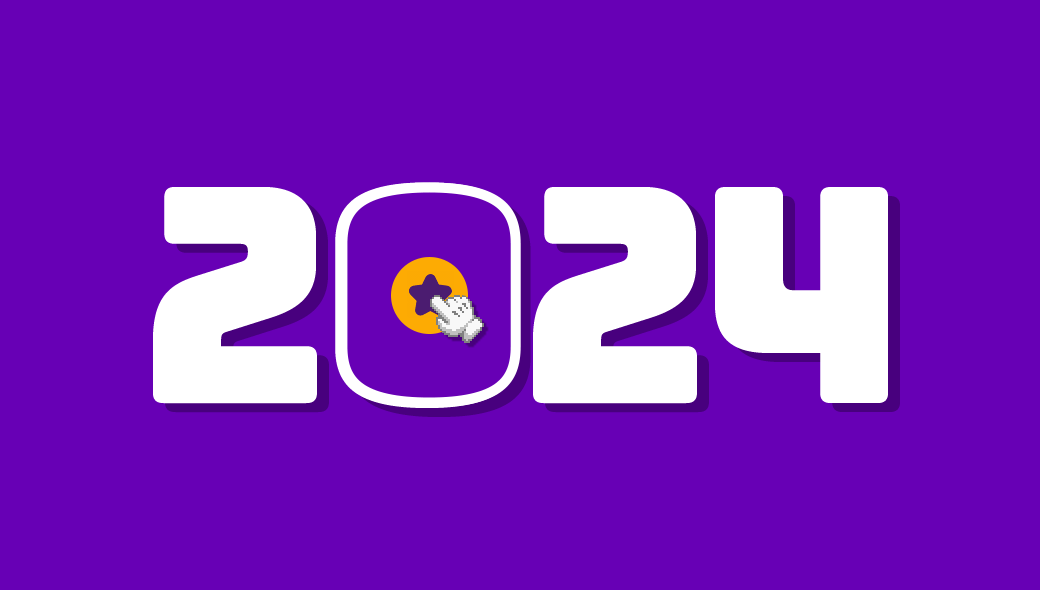
Welcome to SUPERJUMP's annual Games of the Year celebration. As always, I like to introduce these awards by expressing gratitude for the year gone by.
Thank you game developers.
You are creating marvels of art and science - important cultural artifacts - under increasingly difficult circumstances. Whether you work for a large studio or you're a solo developer: thank you. We are all living in an increasingly dangerous and intolerant world, where the moral pendulum appears to be swinging in a violently regressive and hostile direction. Your creative talents not only give many of us a brief escape from this reality, but importantly, you remind us of the importance of human creativity and connection.
Thank you SUPERJUMP team.
It is truly the honour of my life to work with so many extremely talented people who, aside from being brilliant creative minds, are also truly outstanding human beings. Our organisation is fuelled by talent, passion, and love: love for video games, love for the people who make them, and love for each other as friends and colleagues. Every year, more exceptional people join our creative endeavour, and every year we expand our circle of gratitude and creativity further and further into the world around us.
Thank you special guests.
We are joined every year by special guests from across the games industry - whether game development/publishing or media - who give up their time to craft GOTY reflections to share with our audience. I'm deeply grateful for all the special guests who have joined us since the first edition (we're now up to our fifth!) Amidst all the horrors this industry can bestow (especially in the form of layoffs and rampant job insecurity), I'm pleased to see that a sense of solidarity and community still exists.
Thank you to our Backers.
Our ability to create that authors' coop environment is heavily influenced by our incredible Backers. Thanks to you, we are able to pay authors every single month. And thanks to you, we have avoided any need to gate our work behind pesky paywalls. On behalf of the entire team, I want to thank you for believing in us and supporting our hard work.
Thank you to our Editors.
Without our brilliant Editors, I couldn't keep this publication humming so smoothly. They also contribute an enormous amount of their time to edit this unbelievably large Games of the Year feature every single year. Thank you to Bryan, Rachel, Briana, and Cat. You are true superstars!

Finally, I'd like to make one final point, just in case there is any doubt: at SUPERJUMP, we believe video games are for everyone. Everyone. Everybody deserves dignity, respect, and - above all - safety. No exceptions. Nobody left behind.
And now, on with the show. Please enjoy this extraordinary and comprehensive celebration of 2024's best video games. And if you like what we're doing, how about buying us a coffee?
James Burns
Founder and Editor in Chief
2024 GAMES OF THE YEAR
We have very deliberately titled this feature 2024 Games of the Year. The plural matters. As per our tradition, SUPERJUMP does not award an overall “Game of the Year” trophy to any single game.
Rather, each contributor can select up to three of their favourite games released in 2024 to discuss. Naturally, some games have more contributions than others (so, if you like, you could deduce a “winner” on that basis).
In order for a game to be considered for this piece, it must have been released in 2024. This is a slightly rubbery criterion that also includes:
- Games as a service experiences that have seen substantial updates in 2024.
- Games that originally released in a previous year but were ported to a new platform this year or saw some form of new release.
SPECIAL GUESTS
This is our fifth Games of the Year feature, and as has become tradition, we've invited several special guests to join us. As always, our guests are people we love and admire from around the games industry. We're honoured that they took the time to join us in celebrating the best games of 2024.

Jamie Galea is a producer and social media specialist. His works include SBS' New Game Plus, and Couch Warriors League.
Matt Hewson is the founder and editor of Player 2. Player 2 has repeatedly featured as a finalist for Best Independent Media at the Australian IT Journalism Awards, receiving highly commended status in the 2024 awards.
Jörg Tittel is a creator of both games and film, and is the founder and CEO of RapidEyeMovers. Jörg directed and wrote The Last Worker and SKEW and is producing A Winter's Journey for Sony Pictures Classics.
Leah J. Williams is content lead at GamesHub. Leah has been featured as a finalist for Best Games Journalist at the Australian IT Journalism Awards. Her previous works include Kotaku Australia and Gizomodo Australia.
THE GAMES
Select a game to begin
- 1000xRESIST
- Abiotic Factor
- Astro Bot
- Balatro
- Banishers: Ghosts of New Eden
- Black Myth: Wukong
- Buckshot Roulette
- Caverns of Mars (Atari 2600+)
- Conscript
- Crow Country
- Destiny 2: The Final Shape
- Dragon Age: The Veilguard
- Dragon's Dogma 2
- Dread Delusion
- Duck Detective: The Secret Salami
- Elden Ring: Shadow of the Erdtree
- Eiyuden Chronicle: Hundred Heroes
- Emotional Flow
- Fields of Mistria
- Final Fantasy VII: Rebirth
- Frenzy (Atari 7800+)
- Harold Halibut
- Hatch Tales
- Helldivers 2
- Indiana Jones and the Great Circle
- Kunitsu-Gami: Path of the Goddess
- Like A Dragon: Infinite Wealth
- ManorLords
- Metaphor: ReFantazio
- Mouthwashing
- Nine Sols
- Prince of Persia: The Lost Crown
- Princess Peach Showtime
- Silent HIll 2 Remake
- SKALD: Against the Black Priory
- Sonic X Shadow Generations
- Tetris Forever
- Thank Goodness You're Here!
- The Plucky Squire
- UFO 50
- Unicorn Overlord
- Wild Bastards
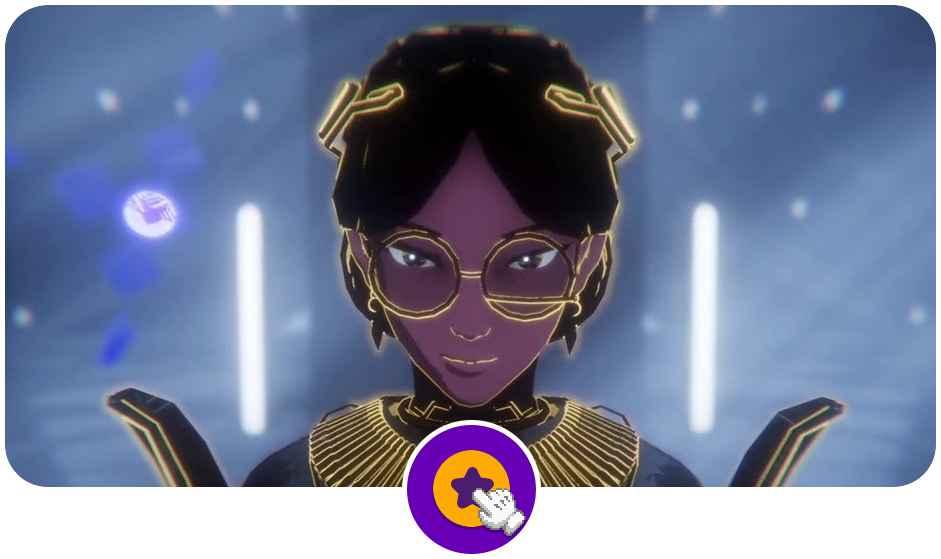
1000xRESIST
Antony Terence
Hubris. Few have evaded its touch in their pursuit to better themselves and the world around them. It’s simple to play an armchair think tank, disagreeing with governments and corporations, questioning their motivations. But what if you raised a simulated society where you could see how far your hubris could take you? By exploring the fallout of Hong Kong’s turbulent Umbrella Revolution, 1000xRESIST gives you the power to shape a future. After hours of understanding characters across eras, the game had me deep in thought over who would get left behind.
Drawing from the generational trauma and religious apocalypse fest of Neon Genesis Evangelion, developer sunset visitor 斜陽過客 does a phenomenal job of displaying the cost of resistance right from minute one. As a Watcher, one of six sister clones, you’re responsible for interpreting the memories of the ALLMOTHER, a divine being you stab in the prologue. As you discover the cracks in the alien Occupant and pandemic-fearing society made in the ALLMOTHER’s image, you learn she was once a teenager whose identity was constantly in flux.
With clear inspirations from Nier: Automata and Millennium Actress, 1000xRESIST uses the lens of a Chinese immigrant child to set up one of gaming’s best-written stories of bandaged pasts and their consequences. As you peel away the false stories your sister clones have been fed, revisiting poignant moments and navigating time skips show the ALLMOTHER’s once-perfect choices in a new light. In the end, you decide which of her decisions were mistakes. Faith, tradition, chaos, responsibility, hope. What will you leave behind?
Sure, it has no bombastic action, button-mashing combat, or labyrinthine progression systems. It’s a hard sell for players who aren’t keen on a walking sim. 1000xRESIST’s story is told via interactive set pieces with basic puzzles sprinkled between them. That leaves it to the storytelling to carry the weight of your expectations. And boy, does it deliver. Great art doesn’t always present answers. And even greater art leaves you with questions that weigh on you long after its credits roll. 1000xRESIST made me bear witness to how human society’s puzzle pieces fit and graze against each other, leaving me with questions I could spend a lifetime pursuing.

"If you are a fan of video games as a storytelling medium, then this is required playing for you, and I hope we see more games really try to explore darker and more high-concept storytelling in the future."
Josh Bycer
Jamie Galea
There's not a lot I can say about 1000xRESIST. It's very much one of those games where the gameplay is more or less a delivery mechanism for its story, and the best way to experience the story is by going into it mostly blind.
It's also the one video game story this year that I couldn't really stop thinking about.
It weaves together generational trauma and resistance to fascism in a sci-fi tale that feels confident in its ability to tell a story. It's the closest we've gotten to a new Yoko Taro game in years in terms of tone and feel, and it's one I've sorely missed.
If you love yourself a good video game story, please go check this out, you won't be disappointed.
Josh Bycer
The surprise entry for my list is one that I only played in December. 1000XRESIST is one of the few narrative-driven games I've enjoyed, and what a narrative it was.
1000X RESIST is one of those games that makes it difficult to elucidate just what makes it stand out. It comes the closest in some time to telling a truly dark sci-fi story out of the '70s and '80s. With a heaping load of generational trauma and murder, the story is both very large in scope and yet still personal.
While the gameplay stays on the basic side, it does allow everyone to appreciate and see the narrative. If you are a fan of video games as a storytelling medium, then this is required playing for you, and I hope we see more games really try to explore darker and more high-concept storytelling in the future.
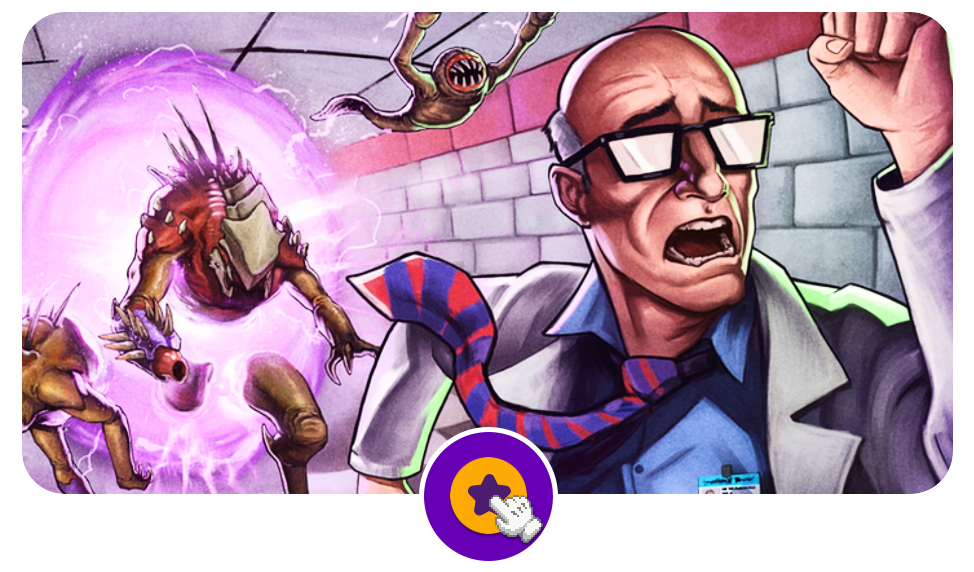
Abiotic Factor
Taylor D. Levesque
Abiotic Factor originally struck me as a meme riffing on '90s games. I tried it because I wanted a laugh, but it turned into so much more than that, involving crafting for survival and fighting off aliens in a research facility that took science experiments too far. The workers left amidst the carnage are tasked with surviving the lockdown and escaping the facility in one piece.
Hungry? Cook up some of the aliens you’ve been killing. Make sure you also get enough sleep, find sources of clean drinking water while you’re at it, and manage your body temperature. Oh, right, and ensure you get to a toilet in time, all while destroying anything you can to find resources and parts to come up with your next big invention. Weapons, new furniture, defenses, new appliances; the amount of crafting in this game is quite impressive. On top of this, every time there is a major update to the game, a significant amount of content is added.
The linear story goes from lighthearted and humorous to dark and ominous as you progress. Lore is dispensed via emails found on computers throughout the facility, from fellow scientists you may come across as you press forward, or scenes that play during your excursions through portals. The more you learn, the more inventions you come up with – and the clearer your path out of the facility becomes.
This game is definitely great to play by yourself, but it is way better to play with other people. Whether you go the co-op route or play with a whole dysfunctional group of the 6-player total for maximized chaos, this game is hours upon hours of fun. Even as an early access game (with a dev team highly receptive to any feedback), Abiotic Factor feels complete, and very quickly became one of my favourite games to be released in quite some time.
As a side note, while the game doesn’t technically have a Linux version available, it still runs very well with Proton.
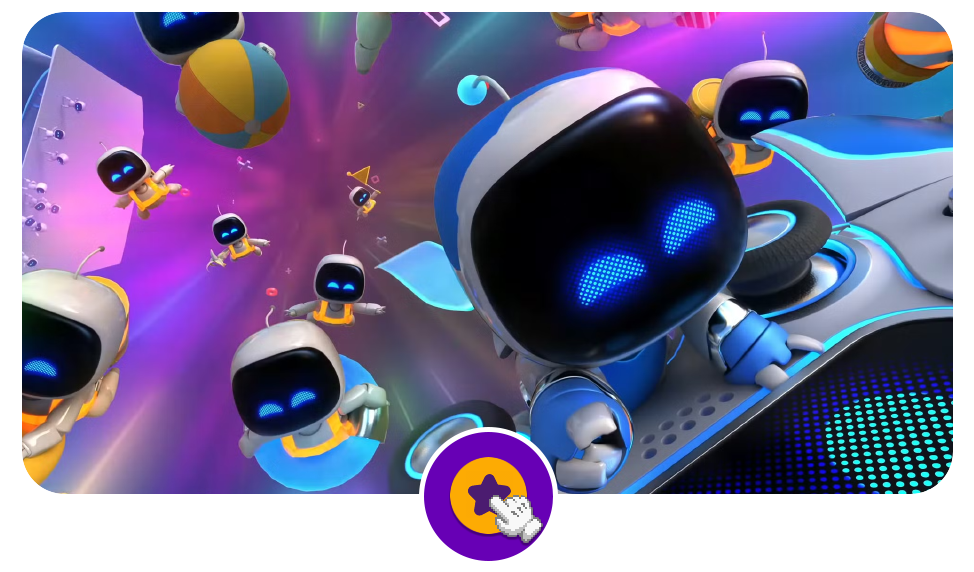
Astro Bot
By Team Asobi
Bryan Finck
Following on from the delightful PlayStation 5 pack-in game, Astro's Playroom, Astro Bot is a fully realized delight for fans of platformers and great game design everywhere. This game is great… really great. It does so many things right, while avoiding practically all missteps, that it easily qualifies as one of the greatest games ever created in its genre. A wonderful sense of awe and discovery permeates every corner of every stage, and mere words cannot convey the simple truth - you must play this game.
As a PlayStation lifer, lucky enough to own every mainline console Sony has ever created, I feel like this game was made for me. Not for gamers like me, but specifically for me. I see that as a critical point because what Team Asobi has accomplished here is to create an almost RPG-like experience in how it will be different for each person who plays the game. Not that the game itself will play out differently, but each person will feel something different owing to the all-important nostalgia factor. Few will have experienced every Sony game referenced here, but the personality built into each character will evoke something unique and special for each person who has played those particular games. I actually yelled out loud with joy when I found the post-apocalyptic survivors from my favorite franchise, and I suspect I won’t be alone in those kinds of reactions.
I could go on and on about Astro Bot but I want you to discover as much of it as possible for yourself. Go play the game, or watch someone play it and enjoy their reactions. Whatever you do, just experience Astro Bot in some manner. It is one of the best PlayStation games and platformers ever created and one of the happiest times I’ve ever had with a controller in my hand. During increasingly dark times in the gaming industry, Astro Bot is a desperately needed ray of sunshine, so get out there and bask in it.
CJ Wilson
Astro Bot is a delightful and fun 3D platformer, a celebration of the PlayStation brand that has been going on for the last 30 years. As someone who enjoys a good platformer, I was excited to see what Team Asobi was cooking up after experiencing the pack-in PS4 game Astro's Playroom. When I finished Astro Bot, I knew I had found my personal Game of the Year winner for 2024. The developers have made an honest-to-goodness platformer with no paywalls, microtransactions, or excess filler to extend the playtime.
Each world was so charming, colorful, and exciting to play through that I constantly smiled throughout my enjoyment of the game. I wanted to make sure that I was getting all of the puzzle pieces and special VIP bots to satisfy the completionist part of my brain. Many of the VIP bots are characters featured in iconic PlayStation titles like Uncharted and God of War, where you even get to play certain levels based around those franchises that include specific themes styled within the Astro Bot world. Some of the bots I found were from games I never played. Certain levels include powerups that change your movement and fighting abilities, like having frogs for hands that let you swing off of sticky surfaces and a mechanical bulldog that lets you blast through rigid materials.
The speedrun courses even have some challenging levels that test your platforming abilities. While some might have been designed unfairly, I knew when I made a mistake that I had to push myself in order to get that one VIP bot.
While the story is relatively simple, with you having to guide the title character in finding his robot pals, what matters is the gameplay. It's tight, responsive, and easy to pick up for hours of enjoyment. I was so happy to play it even as it came out near my birthday this year. I felt like a kid reliving my childhood again by playing something that didn't consume my time. That game is easily Astro Bot.
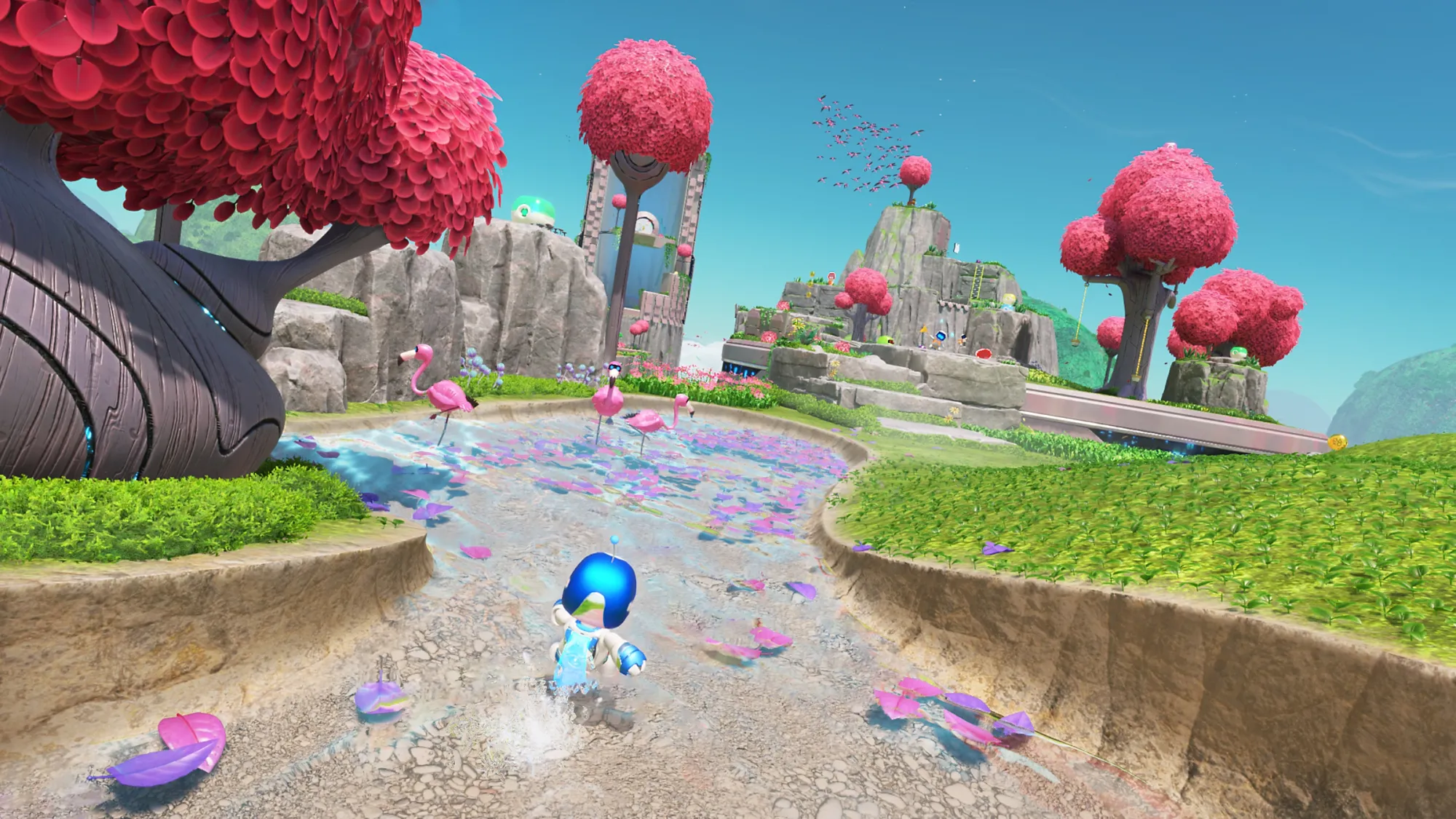
"Team Asobi's game is pure delight, a constant party, a celebration of games and what makes them tick - and what makes us tock along to them."
Jörg Tittel
Harel Cohen
What can I say about this gem of a game that everyone's already raved about? Probably not much, but I'm going to say it anyway because this game deserves it! I had been looking forward to this game since the day it was announced and it didn't disappoint. Astro Bot reminded me why I love video games, platformers, and the PlayStation in general. Tight design, creative platforming, a simple but effective character with a lot of charm, every level is fun and engaging and I just can't put it down! Seeing this little robot take over the world is one joyous occasion because it definitely won my heart this year. He's Astro Bot and he's number 1.
Jared McCarty
Team Asobi’s release of Astro Bot for the PS5 is an unstoppable tour de force of joyful celebration and nostalgic legend. The amount of happiness Astro Bot brought to my household this year can’t be overstated. The art style is whimsical and gorgeous. The platforming controls are tight and satisfying. The soundtrack is so good I’ve been checking constantly to see if it’ll get a vinyl release. The animation quality is top-of-the-line. The level design is ingenious and effortlessly charming. If there’s any fault to be found within Astro Bot, it's that there just isn't enough of it, which is being rectified by consistent updates and DLC. It’s one of the very few games that I took time to intentionally Platinum.
It’s so refreshing to see Sony actually do something big to recognize the impact they’ve had on so many lives. The pure excitement of finding a bot and feeling that few seconds of bewilderment before recognition hitting you is an amazing way to celebrate 30 years of accomplishments in Sony’s rich history. A lot of these characters haven’t been seen for decades, and while it can be quite the bummer realizing this may be the last time any of these industry legends will be seen in an official capacity, it warms the heart every time Bot Jak runs across the screen or PaRappa is seen rapping into his microphone.
My hope is that the success and subsequent acclaim (like winning The Game Awards Game of the Year!) Astro Bot achieved will invigorate Sony to actually do something with so many of these beloved IPs that have been rotting in the graveyard for the past 20 years. Astro Bot and the interest it has garnered is irrefutable proof that these beloved franchises never really died, and that there is a lucrative future for so many of these characters. If this ends up not being the case, and Sony lets the opportunity of a lifetime slip through their fingertips, at least we have Astro Bot to save the world. That satisfaction will be more than enough as we wait for a sequel to this one-of-a-kind celebration of the history of an industry titan.
Jörg Tittel
I know, I know, naming Astro Bot is the least original choice one could make, but then it's also the most deserved one.
Team Asobi's game is pure delight, a constant party, a celebration of games and what makes them tick - and what makes us tock along to them. Every level is special and has at least one "wow" moment and tons of surprises that compel you to see what may be around the next corner.
Astro Bot is also a loving reminder of all we've lost in recent years with AAA's pursuit of realism and bloated budgets - and Games as a Service becoming a de facto death sentence for our beautiful, fragile medium.
Ironically, while Astro Bot celebrated 30 years of PlayStation (and some other franchises), it has shunned its own roots: the game started as a PS VR (1) title, Astro Bot Rescue Mission, which I still consider the best 3D platformer I've ever played.
The fact that Astro Bot didn't come with at least one PS VR2 level - or an HD remake of Rescue Mission - is beyond me. It would have sold PS VR2 like hotcakes.

Balatro
By LocalThunk
James O'Connor
How do you make a viral hit indie game as a first-time game developer? It's simple. You start by having what surely must be one of the greatest ideas for a game anyone has ever had - one that takes a universally understood card game and tweaks it in ways both dramatic and straightforward. You then guide your player, seemingly effortlessly, through your intricate scoring structure, trusting that the player will, over time, unlearn everything they know about how poker usually works.
You build a deck of jokers that balance and synergize, and then you create a progression model and scoring structure that is so elegant, so phenomenally well thought-out, that no two games feel the same, where players must re-write their own rules and ambitions in every game, or sometimes every few hands. You design the game in such a way that all the rules are presented upfront, but growing to understand them – to really figure out what's possible – involves experimentation and inquisitiveness, one that is naturally borne out over the multiple sessions your players will feel compelled to play.
You pay such attention to your user experience design that players are excited by every shake, rattle, and sound effect as points rack up. You wrap it all in a light vaporwave aesthetic that inexplicably ties the whole thing together. Then you give it a name that everyone pronounces slightly differently and release it at a surprisingly low price point.
See? It's easy! You just need to make the right decision 10,000 times in a row.
Lucas Di Quinzio
I am not one to use much modern slang. I’m quite hesitant to introduce a new term unless I feel I can find a use for it. I say all this because I don’t have any better way of summing up Balatro than it has the juice. It has more juice than any other game this year. I don’t know if I’m using that right. Maybe I shouldn’t use new slang. Any way you put it, Balatro is the best pure gameplay experience this year. Solo dev Localthunk takes a simple concept - what if poker but it’s a deckbuilder - and executes it so perfectly that it manages to stand alongside Slay the Spire in the very top tier of the genre. It’s a real dopamine machine, but it’s also mechanically deep. It is a true devourer of time, albeit one that’s hard to describe exactly why it does that. Apart from, of course, to say that it has the juice.
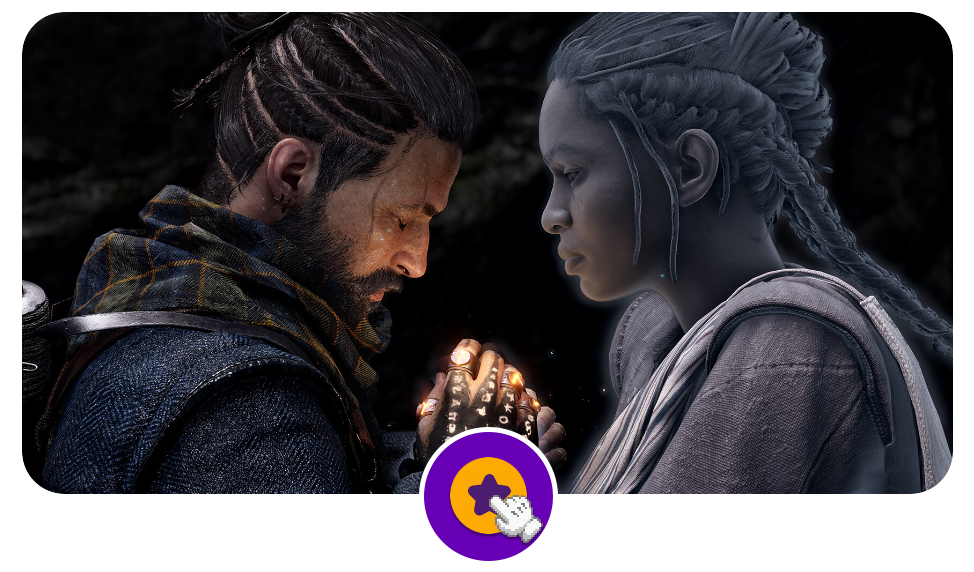
Banishers: Ghosts of New Eden
By Don't Nod
Bryan Finck
The game industry, lately dominated by every kind of re-release and remaster, is in desperate need for new ideas and IP. That was one factor that made the release of Banishers: Ghosts of New Eden in 2024 even more exciting. An underutilized setting and time period combined with new, interesting characters made the game feel like a breath of fresh air in a stale, musty room.
French studio DON’T NOD, best known for the Life is Strange franchise, leverages its trademark choice-based narrative adventure chops with surprisingly good combat to bring this ghostly Action-RPG to a higher level than it might have achieved in different hands. Engaging stories, fantastic acting performances, a large open world with secrets galore, and enjoyable combat make for an excellent experience. Sony supplied much of the marketing push behind the game, which makes sense as it fits PlayStations’s near-patented 3rd-person action specialty like a glove.
True to the choice-based narrative roots of the developers, you’ll face many points in the story where you must decide how to deal with the various people, living and dead, that you encounter along the way. Will you blame or spare the living, banish or ascend the ghosts? It all plays into the central story between main characters Red mac Raith and Antea Duarte, and it all works very well. There is also a healthy amount of haunting cases outside of the golden path of the story, and these are well worth the time to experience them as those action scenes and story bits rival the high quality of the main story itself.
The central game mechanic lies in the ability to switch between Red and Antea at (almost) any time you wish, and it makes the God of War-lite combat better than it would have been otherwise. Satisfying melee combat combines with oft-rewarding exploration around the semi-open world map, all tied together with the story, overarching and single vignettes alike, that keep you pushing through to see where it all goes.
I can’t say enough good things about Banishers: Ghosts of New Eden, and it was always going to be on my short list for Game of the Year. The story is an emotional masterpiece, owning some of the best writing and vocal performances I’ve experienced in many years. The open world sports a ton of activities and collectibles for completionist runs, along with multiple endings for those who want to exercise (or is it exorcise?) their freedom of choice. No matter which path you choose for Red and Antea, I hope you enjoy your time in New Eden as much as I did, for this brand-new IP deserves all the flowers it will hopefully receive.

Black Myth: Wukong
By Game Science
Julia Hu
For context, I’m a second-generation Chinese-American immigrant, and I work at a Chinese company, with frequent business trips to China. I always felt that though I knew a lot about China and Chinese culture, but there's even more that I do not understand. Now, Black Myth: Wukong, with its AAA interpretation of Journey to the West, has opened my eyes to the sheer depth that I do not understand about the country and culture that my ancestors grew up in.
This game’s release was unfortunately a controversial one, marred by the studio leader’s behavior and attitude both in China and its translated versions for the global audience. Even separating art from artist, this game misses GOTY for many due to its excessive use of invisible walls, inaccessible combat difficulty, and an incomprehensible story for anyone not Chinese or extremely well-versed in Journey to the West. But there were many things that Wukong did right, and I found the overall experience of this game to be a breath of fresh air in today’s world of gaming.
Wukong’s playtime was shorter than many other AAA games, but it didn’t feel like it due to how densely packed it was with secret areas and collectibles. Nearly all enemies and bosses were unique, with few palette swaps that many other games lean on like a crutch. The music videos and interactive tapestries that bookended each chapter radiated the developers’ passion, and they were easily my favorite parts of this game. I completed my Wukong experience by going on Reddit after each chapter and reading the writeups explaining the story context behind each chapter. I learned just how much Buddhism influenced an era of Chinese history, and I learned that Chapter 2’s setting is based on Shanxi province. It finally clicked for me that the narrative was an imaginative, What If?-like sequel to Journey to the West, where Sun Wukong died and his enemies returned home changed after their defeat at Wukong’s hands and their repentance with Buddha.
For me, the setting and worldbuilding of Black Myth: Wukong represent one of the most unique entertainment experiences this year. As one Chinese gaming leader summarized it, “This game understands me.” I hope to understand this game too.
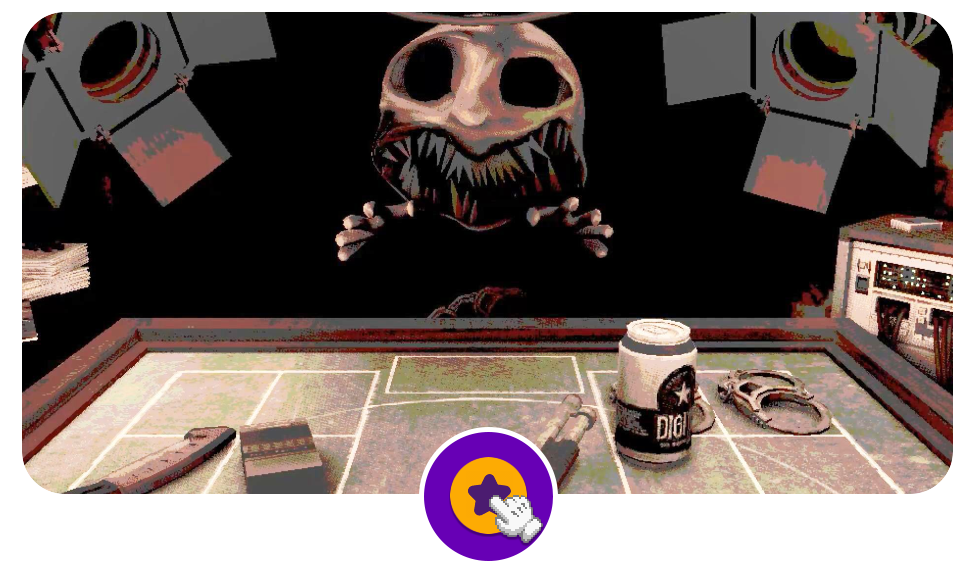
Buckshot Roulette
Jörg Tittel
Initially released in December 2023 and just updated with an insanely fun multiplayer mode, Buckshot Roulette is an exquisitely dark and morbidly funny game of "Russian roulette" with crazy power-ups, set in the back room of a dodgy nightclub.
The game is also refreshingly short, although it will make you come back for more torture and lucky escapes.
Oh, and it also costs less than a latte. Worth a shot.
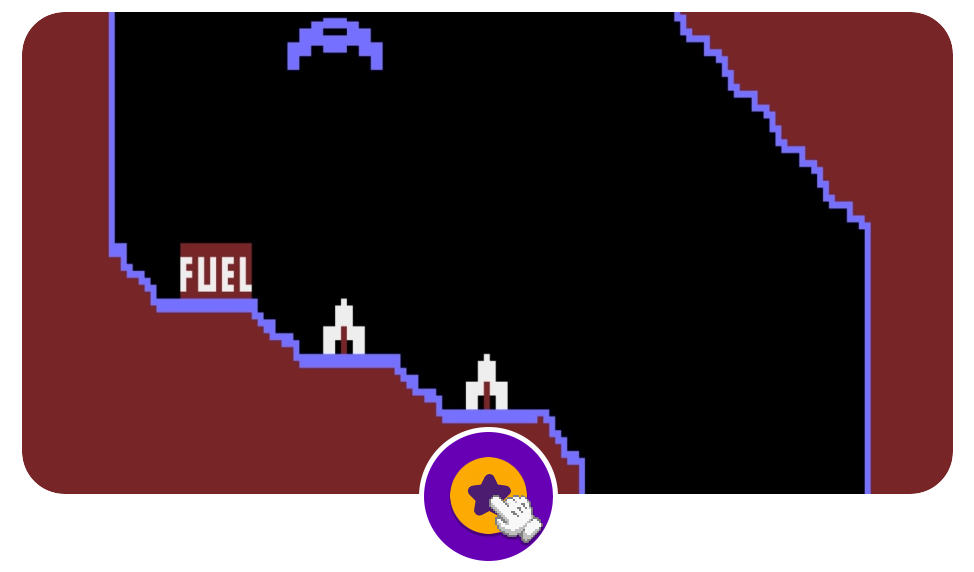
Caverns of Mars (Atari 2600+)
Jahanzeb Khan
Atari have been on a roll under their new leadership.
They have made excellent releases on modern hardware, but the real highlight has been the new hardware and all new cartridges. Launching just in time for the holidays, Caverns of Mars is as good as a classic arcade shooter can get. It's a dive into deep caverns, where you blast through obstacles and navigate mazes, all to chase a high score while traversing the depths. The gameplay execution is simple and effective. Oh, and the packaging is just stunning.
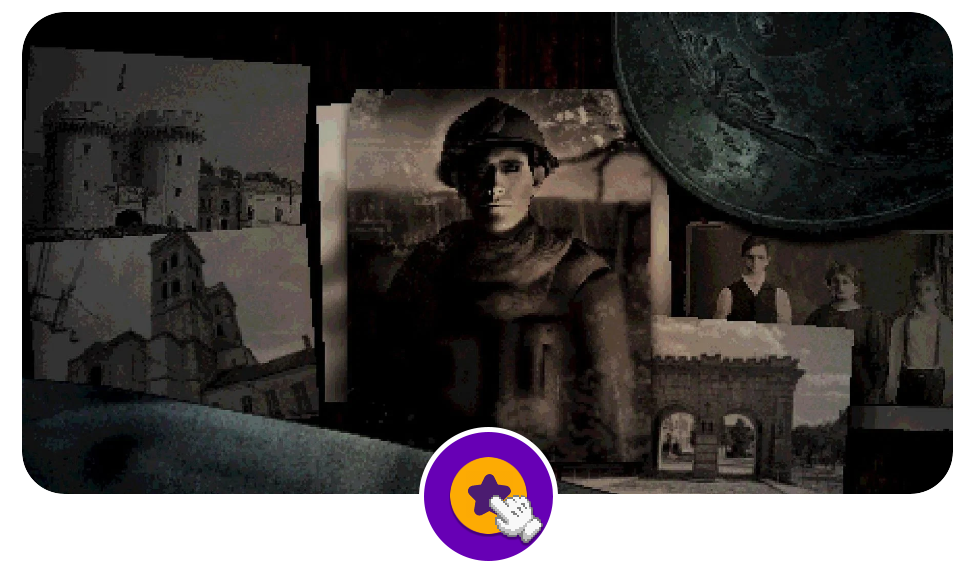
Conscript
By Jordan Mochi
Leah J. Williams
Solo developer Jordan Mochi created something devastating and special with Conscript. This game explores the nature of war as it's rarely seen in games: it's war as horror, as bone-chilling survival, as skin-crawling disgust. With its grimy world and tight, claustrophobic corridors, Conscript impactfully explores the journey of one soldier, beset by all manner of terrors – from roving rats to steel-plated enemies wielding clubs and guns. As you run through Conscript, you feel an icy chill in your bones.
Your pathway is often shrouded in darkness, and a moody soundtrack is punctuated by distant bomb blasts and panicked shouting. You can’t always see ahead, and that adds to the sense of uncertainty and fear that dogs your every step.
In creating his unique tale, Mochi leaned heavily into the mechanics of Resident Evil, and it's this comparison that's most apt. This is a well-designed homage to Resident Evil that uses the mechanics of that series to underline just how awful real-world war is – and why we should avoid it at all costs. Months on, I'm still thinking about Conscript.
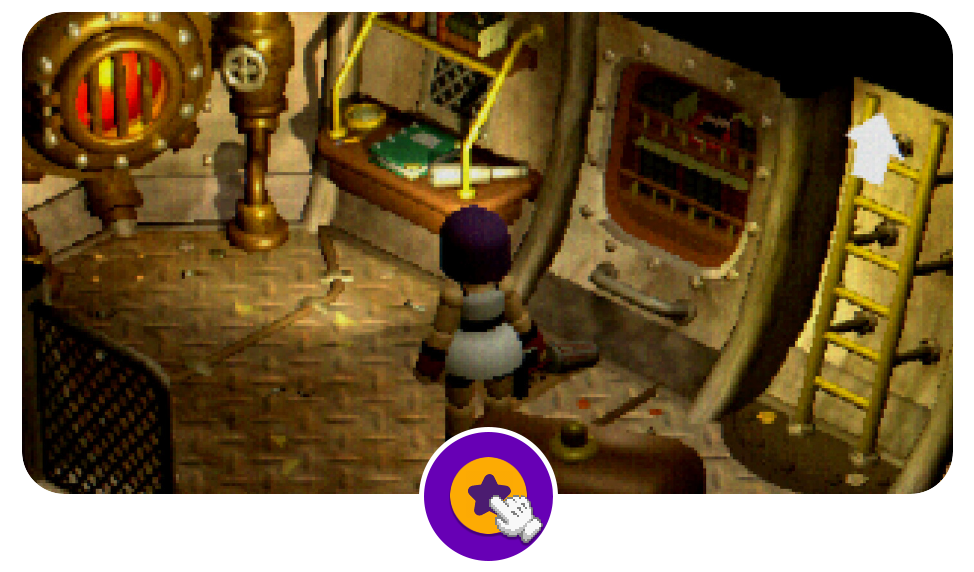
Crow Country
By SBF Games
Brandon R. Chinn
Crow Country is the latest and greatest from SFB Games Limited, a partnership of brothers Tom and Adam Vian. Their first foray into classic survival horror, Crow Country, feels like a natural successor to games like Resident Evil and Silent Hill, with impressively artistic visuals replicating the blocky style of early PlayStation titles a la Final Fantasy VII.
Crow Country is survival horror down to its bones, from its arresting visual style to its gameplay and characters. Exploring the theme park is downright fun, the puzzles are intelligent, and the backtracking is thoughtful with enough interconnected passageways and keys to make any survival horror fan's head buzz.
As with many of 2024's hit indie titles, Crow Country feels like it was pulled fully-formed from an alternate reality, a spectacular example of inspiration clashing with modernity.
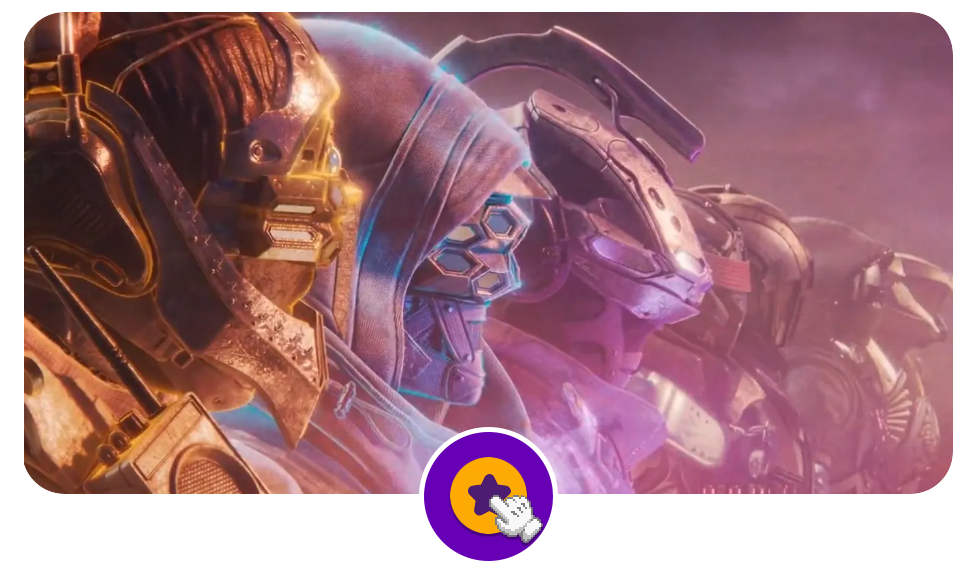
Destiny 2: The Final Shape
By Bungie
Matt Hewson
The Final Shape did something I thought was near impossible, and that was making me care about Destiny again. While the content since its launch has been a hit-or-miss, the initial big slab of new story missions and maps brought me back into the fold in a significant way. The crazy story that has been unfolding over the years often felt directionless and lacking in purpose, but somehow, that all came together in a satisfying way with The Final Shape.
Forget the Season stuff that has come after it. I firmly believe that The Final Shape is the best Destiny has ever been, and it was such a welcome addition after a few years of mediocrity. When this current run concludes, I will be very interested to see Destiny’s next direction; however, Bungie will face a challenge topping The Final Shape, whenever that may be.
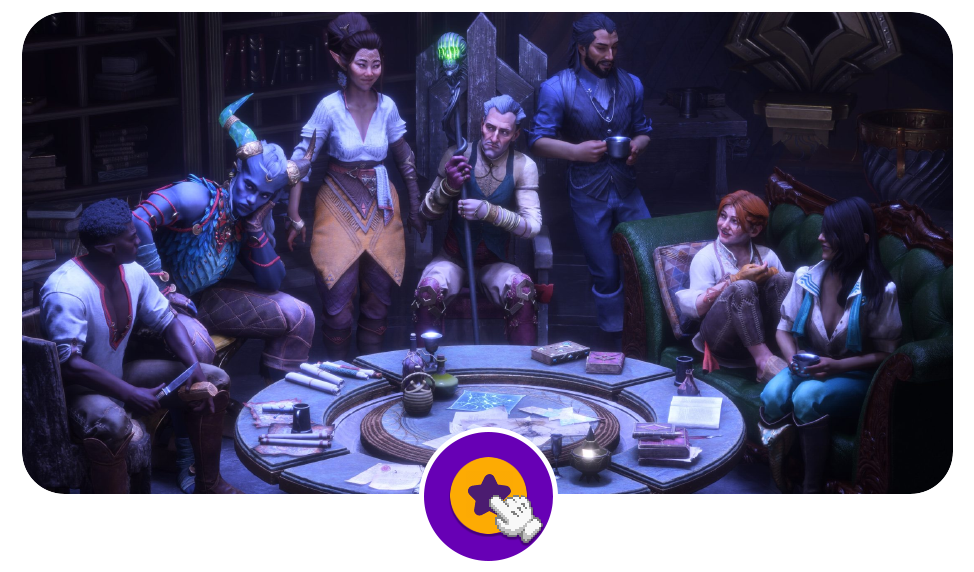
Dragon Age: The Veilguard
By BioWare
Matt Hewson
Is Dragon Age: The Veilguard a groundbreaking experience? Not really. Does it do anything we haven’t seen before? Once again, not really. What it does is perfect a style of game I have loved since BioWare burst onto the scene with KoToR all those years ago. I know that the change in pace has upset a few long-time fans of DA, but the move to a more Mass Effect style has me smiling from ear to ear.
The game also tells a more personal story in a lot of ways when compared to the world-shattering grand fantasy style of Inquisition. Don’t get me wrong, the big end-of-the-world stuff is still there, but by focusing on a core group of people and their personal experiences, BioWare has made the story one that resonates on a more emotional level. Props to BioWare for also making The Veilguard one of the most inclusive AAA games to date with wonderful representations of people from all walks of life, including a heart warming story of one companion struggling with their identity from the confines of a strict upbringing.
It could be argued that BioWare should have innovated more, but for me, going back to what they do best was absolutely the right call. Don’t listen to the anti-woke clowns on the net; this one is a banger.

"Props to BioWare for also making The Veilguard one of the most inclusive AAA games to date with wonderful representations of people from all walks of life, including a heart warming story of one companion struggling with their identity from the confines of a strict upbringing."
Matt Hewson

Dragon's Dogma II
By Capcom
Anselmo Jason
After more than ten years, Hideaki Itsuno has found a way to re-implement his unique take on the RPG genre in Dragon's Dogma II. The world of Dragon's Dogma may not be for everyone, but those who manage to waddle past its pushing winds will find a masterwork underneath.
In Dragon's Dogma II, the series' unique pawn system has been expanded with more useful interactions. The combat, while more streamlined, manages to retain the previous game's weight and impact. Combat synergy is more encouraged, which leads to beautifully catastrophic encounters.
It is a game that takes extra steps to add levels of immersion in its world-building. The game world can be challenging and unforgiving but nevertheless rewarding. Not only in successful combat encounters but as it rewards players with exploration and experimentation through the game mechanics.
Undoubtedly, Dragon's Dogma II is one of Capcom's most visually impressive games thanks to the utilization of the RE engine. Although this lends itself to performance issues, there is no denying that the world looks visually breathtaking, especially with stupendous lighting effects.
Despite its title, Dragon's Dogma II is not a direct continuation of its predecessor, but rather a re-imagining of its vision. As a result, this is a Dragon's Dogma role-playing experience created to its most refined scope; a punishing but immensely satisfying action RPG, warts and all.
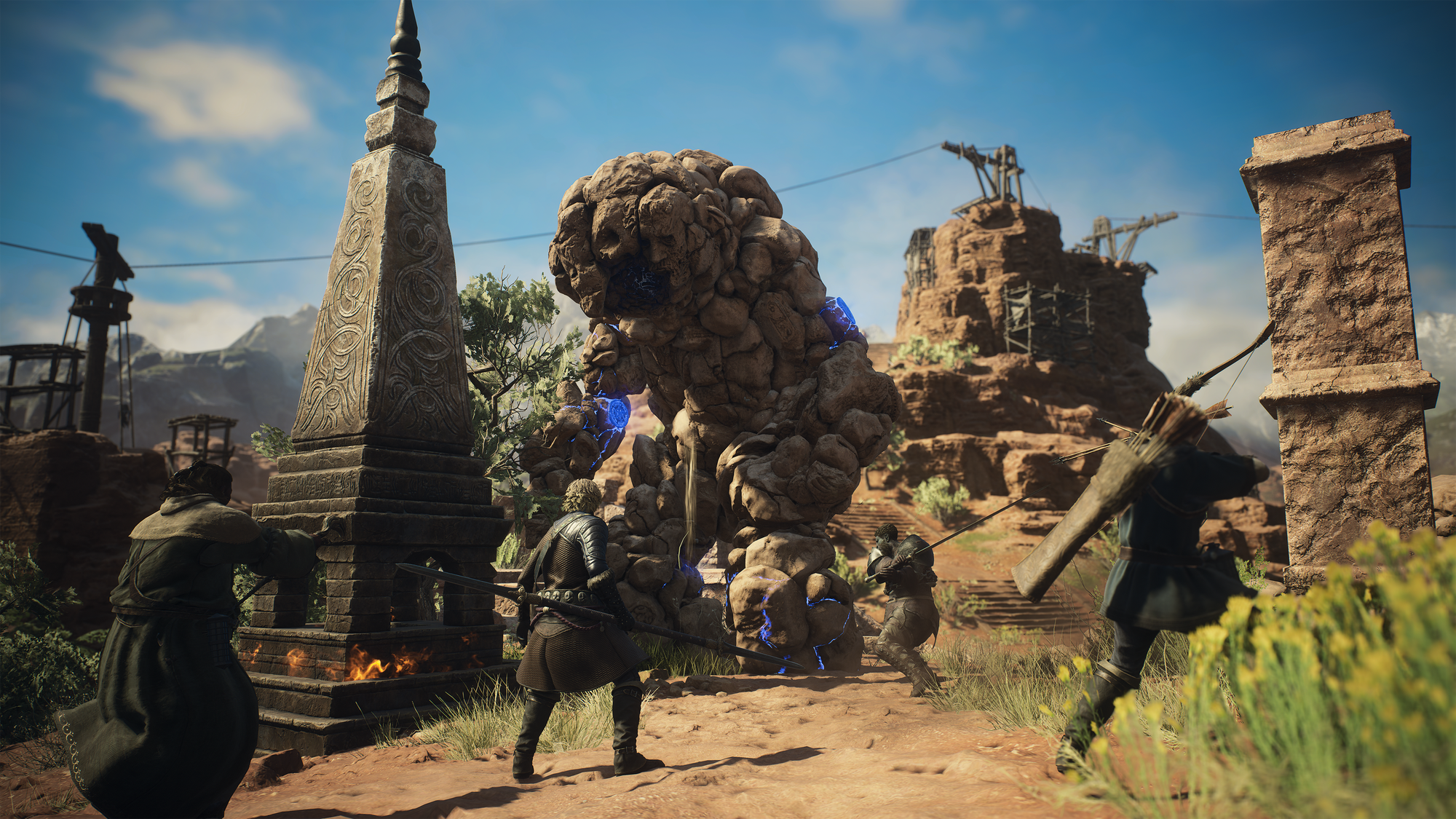
"It is a game that takes extra steps to add levels of immersion in its world-building."
Anselmo Jason
David Cole
I played Dragon’s Dogma: Dark Arisen for about ten hours before bouncing off. The learning curve and difficulty were just too steep for me at the time. I always viewed it as something of a cult game, a piece with a passionate audience somewhere that I just didn’t fit into.
Then came the unlikely sequel.
Dragon’s Dogma II is, by and large, a better version of Dragon’s Dogma. It’s bigger, content-rich, and beautiful. Capcom used the RE Engine to build this one which means fantastic graphical fidelity on top of smooth gameplay. DD2 didn’t come out of the gate swinging so well on that second front, especially on PC. But even as a PC settings stickler, I found so much joy in building a fantasy version of Colonel Sanders and dishing out hot justice upon the monsters of the land.
For those unfamiliar with the series, Dragon’s Dogma is kind of a cross between the Dark Souls school of stamina management and the Monster Hunter school of WOAH THAT’S A BIG CREATURE. Combat involves a lot of positioning and tactical thinking in order to operate effectively. The rich class system allows for varied builds and playstyles, from the typical fantasy classes to fun additions like a spear-focused caster. It won’t replace Elden Ring for anyone, but it’s an arguably more accessible version of those vibes while still coming across as its own thing.
The plot was nothing exceptional, but there were enough monumental moments to make the journey worthwhile. Fighting a Harryhausen-esque colossus as it rampages across a volcanic isle stands out as one of my favorite sequences this year. It was not just a wonder to behold visually, but a fun thing to play! That's something that doesn’t always happen and, frankly, deserves more credit when done “right.”
Also fun? The pawn system. Essentially, you craft two characters: your character and a second, called a “pawn.” Pawns roam the open world and can be summoned from any of the numerous rifts. The pitch is that every pawn is something somebody created and their time with you will help them grow and collect information about the game world that they can take back to their own player’s game. It admittedly became a little annoying when a well-versed Pawn would constantly alert me to nearby chests, hidden and not, but the system as a whole was executed so much better this time around.
Despite some rough edges, Dragon’s Dogma II is so experimental and unashamed of itself that I couldn’t help but fall in love with it.
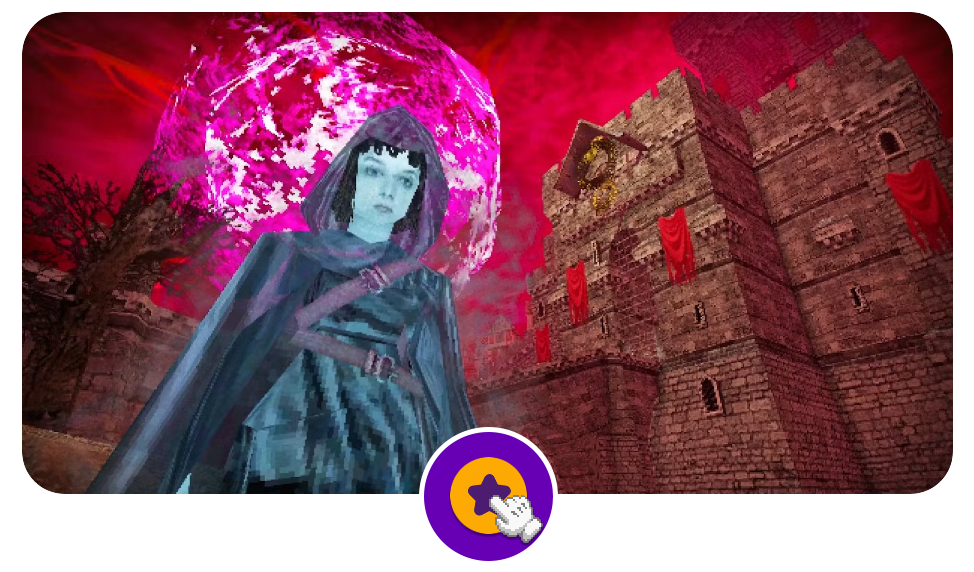
Dread Delusion
Jared McCarty
Dread Delusion is a game I’ve been waiting to sink my teeth into for quite a few years. I’ve had the pleasure of attending the last few PAX West shows in Seattle, and I saw ads for Dread Delusion at practically all of them. The ads always showed vast expanses of pixelated landscape, covered in disturbing and unsettling creatures, interesting locations, and an overall twisted aesthetic that seemed right up my alley. I was lucky enough to get a code from developer Lovely Hellplace, and it proceeded to take over my whole year.
Dread Delusion focuses heavily on its world building, and it succeeds in its endeavor more so than games with budgets ballooned well beyond its humble trappings. It is the definition of the saying "more than the sum of its parts" – every aspect of it is executed in service of another. This creates one of the most cohesive and fun RPGs I’ve played in a long time, and I can already tell it will be one that I revisit often as time goes on.
I wrote an article earlier this year talking about why Dread Delusion is so fantastic, so if you’re interested, I highly recommend giving it a read. It’s an amazing RPG with one of the deepest horror atmospheres I’ve seen in a very long time. If you like horror, you have to give it a shot!
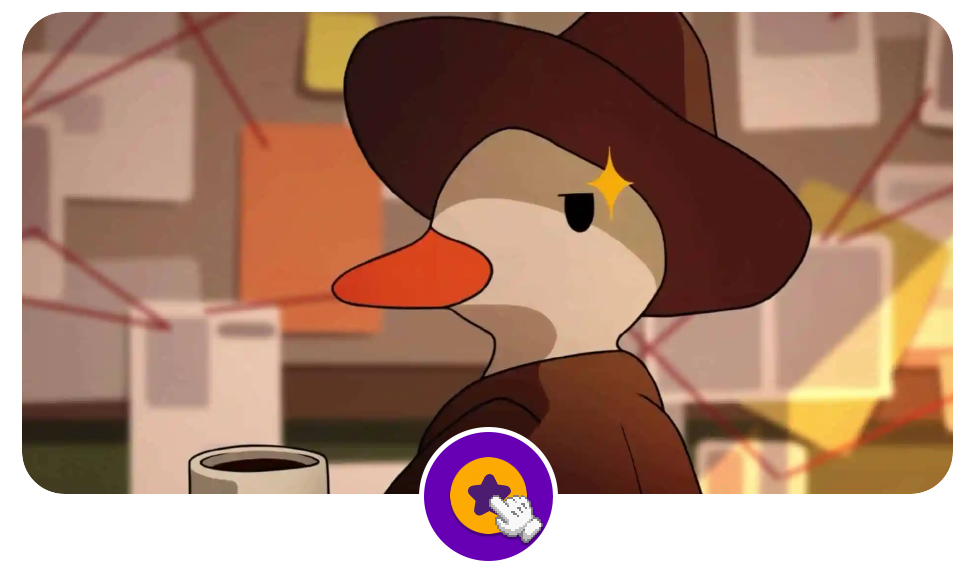
Duck Detective: The Secret Salami
Leah J. Williams
Duck Detective: The Secret Salami is an absolutely delightful game that rightfully deserves an accolade as one of the best of 2024. It may have flown under the radar of mainstream noses, but that doesn't make it any less warm, funny, or brain-ticklingly satisfying.
For those unfamiliar, this release from Happy Broccoli Games puts you in the shoes of the titular Duck Detective, a down-on-his-luck duck, who's tasked with solving the mystery of stolen salami in a workplace where nothing is as it seems. While only 2-3 hours in length, Duck Detective makes the most of its run time, for a silly, joyous, and occasionally dark adventure filled with charming puzzles, and intriguing set pieces.
This game is an excellent, bite-sized adventure that takes light cues from The Return of the Obra Dinn and The Case of the Golden Idol, for a tale that is very quirky, and memorably sweet.

"This game is an excellent, bite-sized adventure that takes light cues from The Return of the Obra Dinn and The Case of the Golden Idol, for a tale that is very quirky, and memorably sweet."
Leah J. Williams
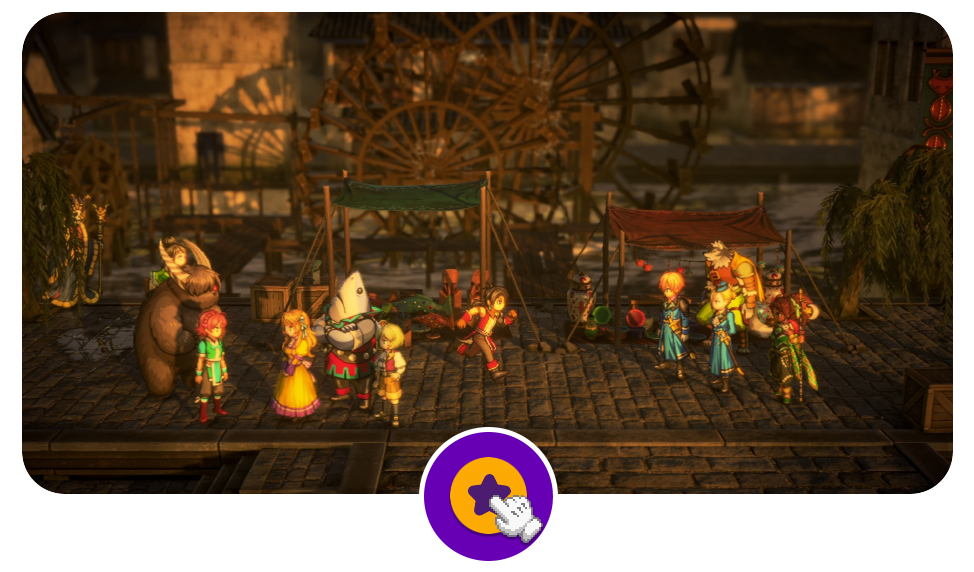
Eiyuden Chronicle: Hundred Heroes
Andrew Johnston
To my shame, I managed to miss the PSX era of RPGs - sprawling, epic, ambitious games packed full of absolutely everything that the developers could dream up. The recent JRPG revival has strongly favored a more focused, streamlined style of game over the more expansive RPGs, but Eiyiden Chronicle demonstrates that there are still people working on those massive titles of old.
Eiyuden Chronicle is the kind of game where one can ignore the central plot, wander around for hours picking up stray side quests and chatting with potential recruits, and never feel bored by the experience. A big part of that is the scope and spectacle. Whether watching your roster grow to an absurd number or witnessing the development of a new home base, it's a game that gives a real feeling of its size.
Beyond that, it's just a wild ride in general. Eiyuden Chronicle is very much a game designed with a philosophy of "That sounds cool, put it in." It's another throwback to an older set of principles, and it really work well. Between the tremendous variety in character design and personality and the surprisingly robust minigames, there's no end to what might show up, and it gives the whole package a feel that's rare in the modern market.
It's likely that this style of RPG will remain rare. I don't think there are a lot of groups with the resources or the temperament to tackle games this expansive. Even so, I do hope we get one from time to time.
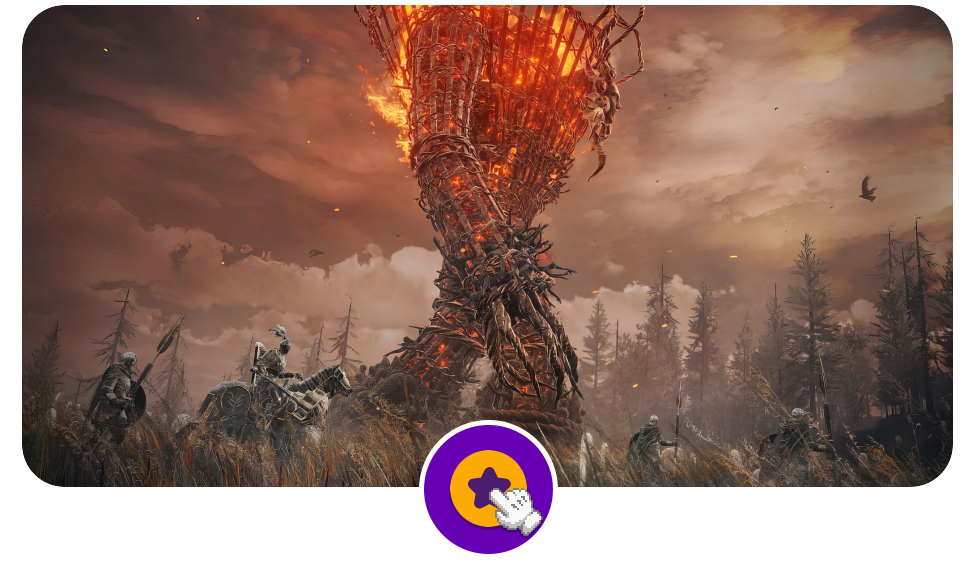
Elden Ring: Shadow of the Erdtree
By FromSoftware
Ignas Vieversys
It's bittersweet to write about my favorite game of the year when one's relationship with video games is on the rocks. Reader: it feels like penning a farewell letter to a dear old friend, afflicted by an incurable disease... After playing countless games released this year, both indie and triple-A – from Lorelei and the Laser Eyes (didn't finish) to Anger Foot and Prince of Persia: The Lost Crown – I managed to finish only one game and that is Shadow of the Erdtree.
Technically speaking, it isn't a stand-alone game, but an additional content to one of my favorite video game experiences of the past decade. But when it has more heart and is more complete than some games I played this year, disqualifying Shadow of the Erdtree for the sake of its DLC nature would be the same as saying remakes aren't allowed either. What a maidenless thing to do.
I didn't have high hopes that Shadow of the Erdtree would deliver me the dragon I've been chasing since beating the OG Elden Ring, but how wrong I was...it delivered, and did so in spades! I think RPS's Ed Thorn summed it up best when he wrote: "Erdtree, you see, is nails. The map may look titchy in comparison to the Lands Between, but it's home to more fu**ery per capita." The Land of Shadow is denser – one of them, shrouded in fog, actually features an insta-kill sneaking section that is pure nightmare fodder – and it's more punishing, somehow. Another area, the Hinterlands, is so well hidden and optional that, if not for one trinket needed to bring down the final boss, I would have missed entirely – and it's like one-quarter of the whole map! Unlike Elden Ring, too, a few of the bosses in the DLC actually demanded that I go grind Scadutree Fragments and Revered Spirit Ashes, which required watching a guide and dedicating a good couple of hours to doing. I'm not a fan of the grind, see, but doing so in The Land of Shadow was something I didn't mind.
I think the reason why Shadow of the Erdtree is my favorite game of 2024 is because, just like Elden Ring, it reminded me how great playing a game upon its release can be. It was great watching streamers getting stuck on the same bosses, people sharing tips on a dedicated Reddit sub, everyone collectively (!) flipping bird to the Promised Consort Radahn - the fight that took around 300 attempts and still haunts me in my dreams. In 2024 I tried Sekiro, I tried Dark Souls and Black Myth Wukong, but there's something magical, child-like, about feeling like part of the movement, before the game is beaten to death with all the secrets unearthed. There is nothing like playing a game like Shadow of the Erdtree on its release date.

"The grand scope of a breathtakingly magical land bursting at the seams with a seemingly endless amount of discovery to be had..."
PJ Walerysiak
PJ Walerysiak
Whenever a DLC has so much game that it can be a standalone sequel on its own merit, it stokes a blend of emotions within me. Happiness, disbelief, and most of all gratitude. To be able to experience so much more of a beloved thing is a gift of grace. And boy did FromSoftware spoil us all this year.
Elden Ring: Shadow of the Erdtree reminds the player of all the aspects that make the base game shine. The grand scope of a breathtakingly magical land bursting at the seams with a seemingly endless amount of discovery to be had; a cryptic divine plot that you are woven into and must find your place within; incredible weapons, armor, and items that are a delight to experiment with; intense combat that rewards patience and skill – this DLC takes all these characteristics and expands upon them, just as truly as any great sequel would. And they do it over the course of a monumentally huge expansion that added at least 50 hours of playtime for me. And that’s a conservative estimate.
It felt like playing the game for the first time again. Hell, I got my ass thoroughly kicked by the first enemy I saw. And to make me experience that after I put 300+ hours into the game already is a total triumph.
FromSoftware has built an incredible legacy over the past 15+ years. They always iterate upon their previous designs, a vital part of their continuous success. Knowing what works and having the awareness of what can be done better allows them the freedom to consistently grow onwards and upwards. They can safely throw a few risks in there to see what sticks. And while every risk doesn’t pay off, the whole package still coalesces to form this golden experience that eclipses any lingering bruise.
I’ve seen Elden Ring and Shadow of the Erdtree referred to as FromSoftware’s “Magnum Opus”, though studio president Hidetaka Miyazaki has said he still hasn’t created his “ideal fantasy RPG.” His desire to create even greater adventures is inspiring and, frankly, almost baffling. How do you go even higher when you’re at the pinnacle of your game?! Perhaps when you paved the road to the top yourself, continuing onwards is not only feasible but the only way to grow further.
I’ve no doubt that whatever comes from Miyazaki and FromSoftware next will be a banger, even if Shadow of the Erdtree does cast an amazingly long – forgive me – shadow.
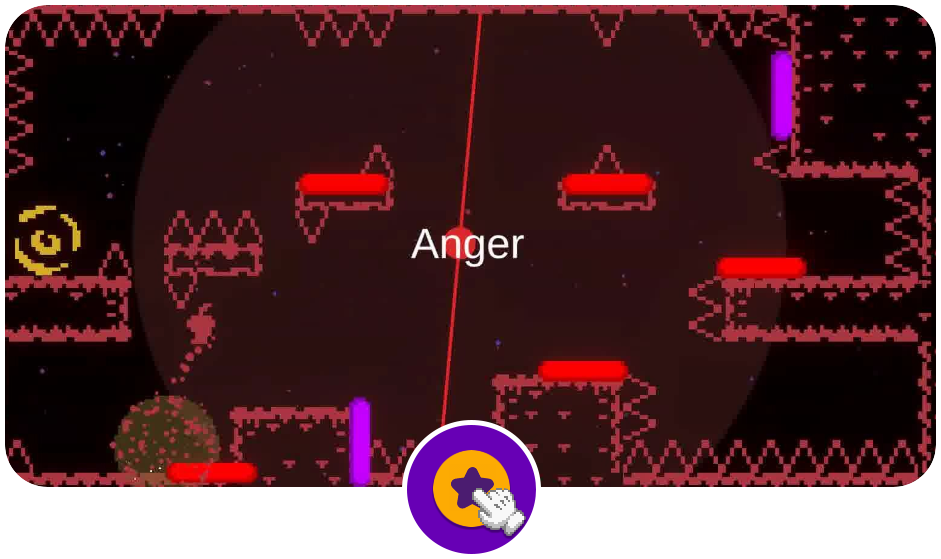
Emotional Flow
Priya Sridhar
Indie games are always full of surprises. Emotional Flow shows what happens when you take the elements of Celeste away from the mountain and into a traumatized mind.
To help save a friend, you have to face bosses like Depression, Anxiety, and so forth while navigating dangerous platforms with no save points. Despite the game's frustrating levels, there is a great payoff when you face a boss and finally defeat it with the power of memory, quick thinking, and keyboard warrior strength. I hope more people play this one, especially if 2025 gets darker.
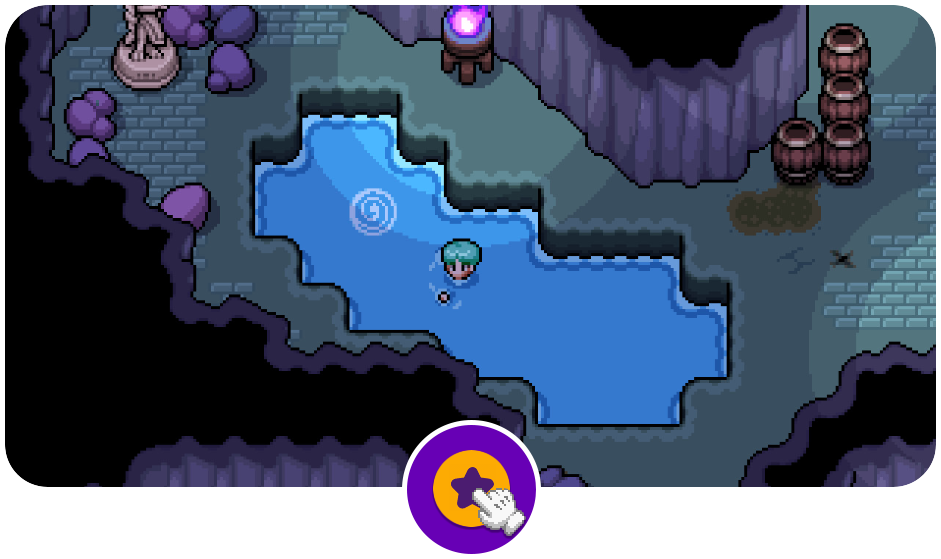
Fields of Mistria
By NPC Studio
David Cole
Let me pitch this game to you: it’s Stardew Valley by way of BioWare. You take possession of a plot of land on the outskirts of a rural village and must, as they say, get back to nature. As you go about this, you will slowly come to know and build relationships with the twenty-eight currently implemented characters inhabiting Mistria. Like any Harvest Moon-alike, there is a relationship building mechanic that involves the daily gifting of favored items, constant conversing, and participating in special events that unlock as you progress.
Where Mistria stands apart from its contemporaries is in its art style. Many of these so-called “cozy” games kind of blend together. Mistria meanwhile has taken its relatively simple sprite-based characters and given them expressive full-body character art inspired by '90s anime (namely Sailor Moon). This gives the effect of a more fulfilling and rounded interaction, even when just casually talking with them. You can read parts of the characters’ personalities based on their clothing and body language.
Things open up remarkably fast while still guiding you effectively through the wide range of day-to-day activities you can partake in as you go about your endless quest to have a peaceful life. The gameplay loop in Mistria is as satisfying as any I’ve experienced in the genre, though it does not break the mold in this regard at all. Minute-to-minute, the game feels remarkably like Stardew Valley, with tweaks here and there to improve quality of life. But in all honesty, I don’t see this as a weakness.
Fields of Mistria does not reinvent the wheel, but it does push the genre forward with a greater emphasis on storytelling. Stardew’s roster has its fans, and rightfully so, but where that game has a cast, Mistria has characters. Scenes involving these people talking about their specific hopes, their fears, even their shortcomings, are frequent. Despite its early access state, there are satisfying notes of character development throughout! Like March, a blacksmith, who defiantly pushes back against the player when they first move into town and slowly begins to warm up to them.
It’s a charming game with a wonderful soundtrack, a clear sense of identity, and it’s very friendly to a wide range of expressions and sexualities. Romances are open and believable, without queer options being an afterthought. Something else that’s wonderful to see in the genre!
Choosing a “game of the year” can be a tough task. But for me? Fields of Mistria is that game. Even after playing through most of the content on offer and setting the game down for now, I still think fondly of its characters from time to time. Imagining which ones will expand in what ways. Perhaps the potential is part of the appeal, but I won’t apologize for being an optimist.
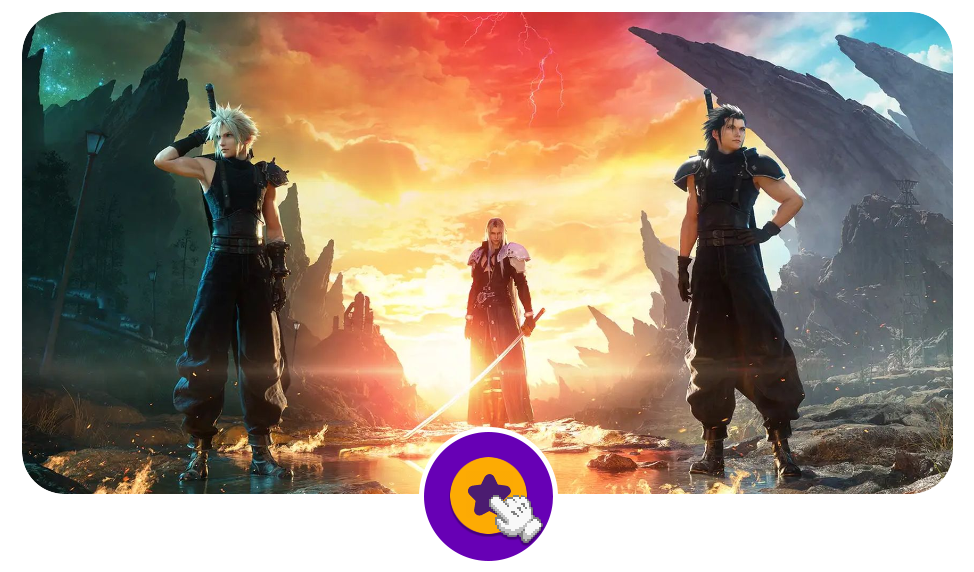
Final Fantasy VII: Rebirth
By Square Enix
Rachel Alm
Final Fantasy VII: Rebirth improved on all of what made Remake great, with graphical improvements, an expanded battle system, and deep party-relationship dynamics. It’s a game I kept coming back to even after I finished the main campaign, because the richness of a familiar 2D world realized in full 3D makes for compelling exploration, with things like chocobo racing, various mini-games, and a system of map completion that involves scaling towers and finding shrines to unlock summons.
It’s a game that occupied most of my gaming time this year, and I ran through it with a fervor of joy. It’s extremely successful on multiple levels – but what hit home the most for me were the characters. In and out of combat, their personalities shine, and the shared hardships and a focus on deepening our bonds with them helps frame not only the journey at large, but Cloud's despondence and increasing instability throughout it. The emotional core of the entry is rooted in exploring the original’s most resonant moment, and while this might be for better or worse, the hanging threat of it creates stakes that feel higher and darker, even as the game exudes – and celebrates – hope beyond it.
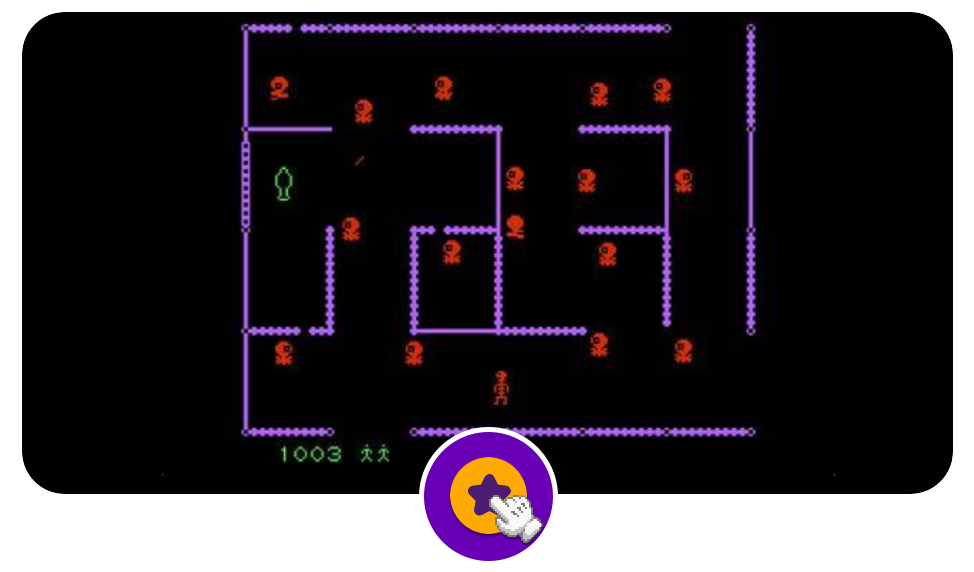
Frenzy (Atari 7800+)
Jahanzeb Khan
Atari revived the 2600 console in 2023, and in 2024 they revived the 7800 platform in style complete with a line up of launch titles and even wireless controllers. Berzerk is one of the best games on the 2600, and the sequel now all revamped and repackaged for 2024, presents one of the most satisfying roguelike maze action games. The shooting is crisp and relentless, and it's just an easy one to come back to for one more run.
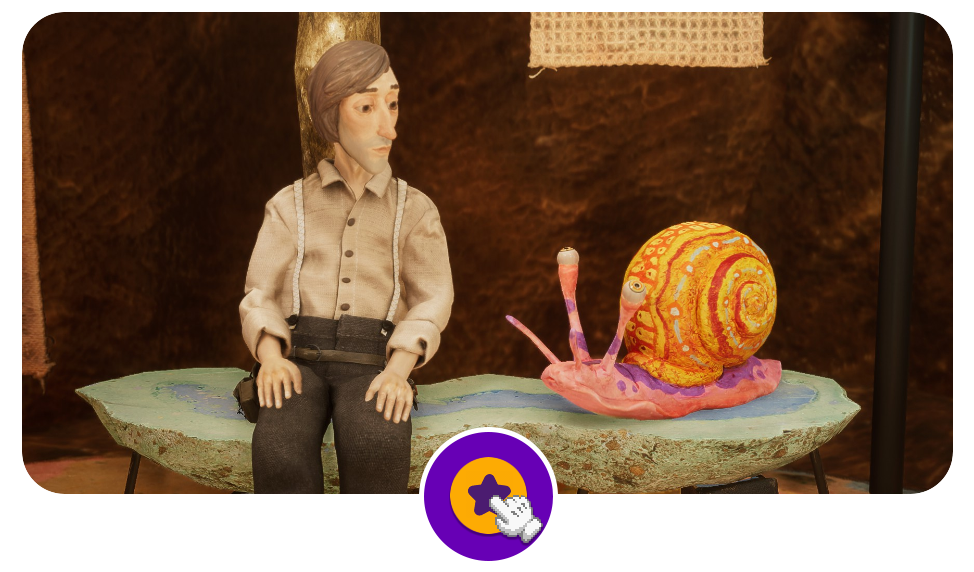
Harold Halibut
By Slow Bros.
James O'Connor
Harold Halibut is what we in the industry like to call a "James pick", because it was made specifically to appeal to me, James O'Connor. It's a game set in a small, handcrafted world - in that all the materials in the game were literally crafted by hand and scanned in - where you play as an unassuming janitor aboard a crashed space station who finds himself reluctantly becoming a key player in a larger narrative - one that puts the fate of the colony in his hands.
Harold Halibut is largely a game about running back and forth, having conversations, poking around new environments and trying to get a sense of what every individual character's deal is. It's a game about a man who never becomes a hero, per se, but who realises that he's a bit more capable than anyone was giving him credit for - even if he is, and perhaps always will be, fundamentally an outsider.
It's not everyone's cup of tea - this is a slow, sedate experience - but I think it's beautiful and lovely, with a sort of squishiness to it that makes the whole game glimmer with humanity. The intentional artificiality of the environments make the whole thing feel more "real", which is a lovely contradiction. It's a rare, wonderful game.

"Harold Halibut revels in exploring these themes, sparking renewed ambition, curiosity, and hopefulness in players. That's all we can hope for in our video games – that they allow us escape, while opening a window to new beauty and light."
Leah J. Williams
Leah J. Williams
Harold Halibut is an artful and emotive exploration of the meaning of life and individual purpose in the world. It should rightfully be applauded for its uniqueness, its warmth, and the talent of its construction – if you didn't know, the entire game was built by 3D-scanning miniatures, and then animating them digitally. What results is a game that looks and feels like a living work of art.
You can see fingerprints on clay models, and feel the care in their creation. You can sit back and marvel at each set piece, knowing you're wandering within a space that once existed. It's beautiful. It's phenomenal. The game deserves so much praise, and then more.
And that's even before we get to the story, which is poignant and moving in ways that last well beyond its runtime. The titular Harold, as the avatar of the player, doesn't know where he fits in the world – like an extra puzzle piece in a box. But then, the mundanity of his life is interrupted by the arrival of a strange creature, which reveals a whole new world much bigger than Harold's own.
Harold Halibut revels in exploring these themes, sparking renewed ambition, curiosity, and hopefulness in players. That's all we can hope for in our video games – that they allow us escape, while opening a window to new beauty and light.
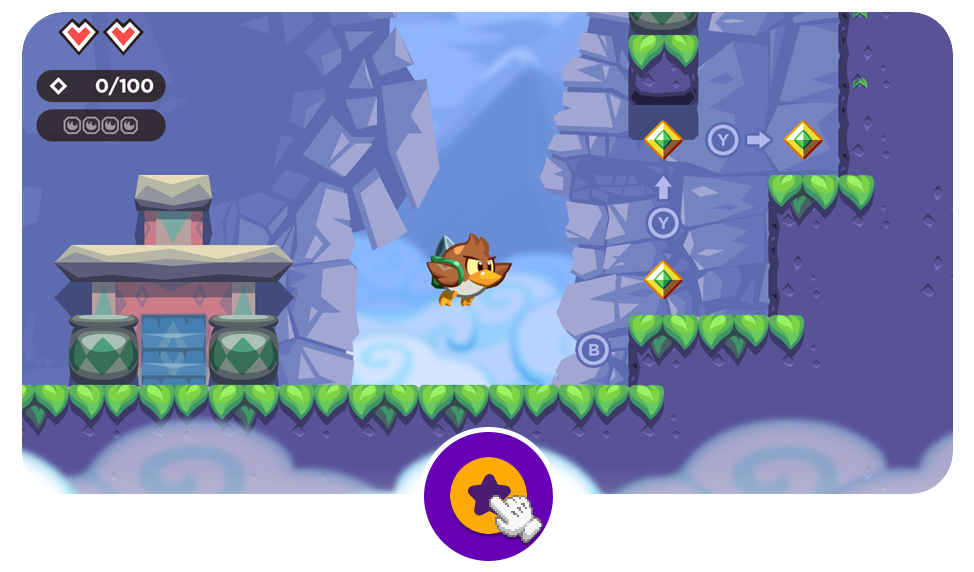
Hatch Tales
By Atooi
Priya Sridhar
What does it take for a flightless bird to save a kingdom? A grappling hook! Though having platforms with no monsters also helps. Hatch wants to save a kingdom and discover ancient relics. With a trusty grappling hook and allies wishing to help him, this game is just pure fun and adventurous while navigating different levels. It does require skills, especially for water levels where it's easy to sink or run into painful obstacles, but Hatch Tale maintains a fair difficulty spike where the player's learning can only improve.
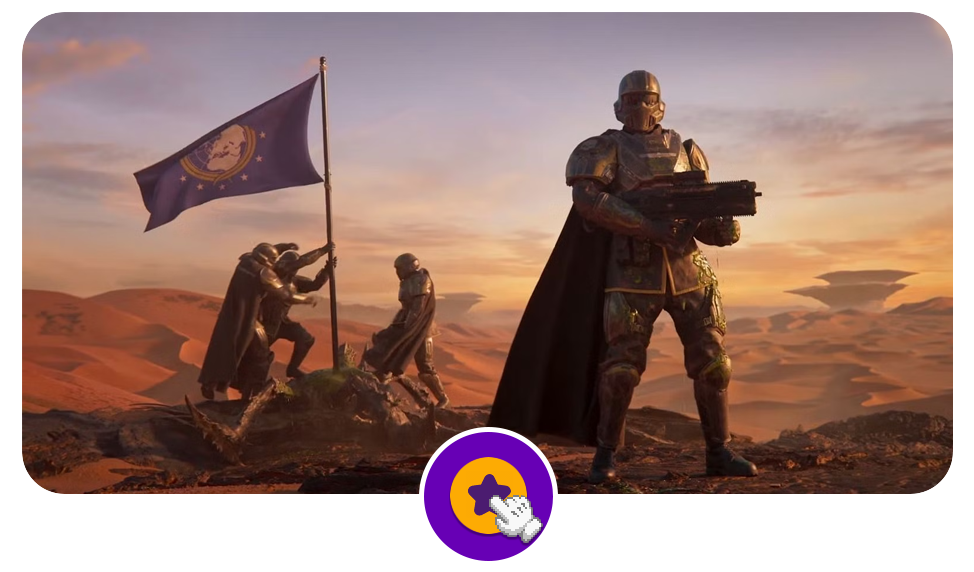
Helldivers 2
Gavin Annand
There’s a mysterious formula behind the explosive, viral success of Helldivers 2. I’m not sure anyone has ever quite nailed it down, but whatever it is, Helldivers 2 has it. Helldivers 2 is more than a successful game – it’s a meme factory, a viral hit, a cultural touchstone, an indelible part of the current zeitgeist. Helldivers 2 managed to strike a chord with gamers in a way that few games do, arriving at just the right time, in just the right market conditions, and achieving just the right level of market exposure. Overwatch managed it back in 2016. Call of Duty 4: Modern Warfare achieved it in 2006. Among Us and Fall Guys did it in 2020, spurred on partially by a world locked indoors with nothing to do except play online games.
In the case of Fall Guys or Among Us, COVID was obviously a major factor, but the factors contributing to viral success aren’t always clear. We live in an increasingly polarised world where democracy is perpetually under threat, and selectively interpreted by those who seek to undermine it. Perhaps it was Arrowhead’s biting satire of “democracy at all costs, even democracy itself” that struck a chord. In Helldiver’s parody of the world we live in, perhaps we saw glimpses of our own reality. And in a world of increasing strategic competition between major global powers, where opposing power blocs are increasingly defined by their “otherness”, perhaps there are snippets of reality in the fortress mentality of Super Earth, carrying out its pre-emptive war against the outsiders, fuelled by blind patriotism and paranoia. Helldivers 2 is an absolute blast to play, full of cheeky humour and chaotic battlefields, but beneath it all, I think there is a game that will become culturally and historically significant as an artifact of the times we live in. Even beyond the game itself, the drama that unfolded between Arrowhead Studios and Sony over the requirement for a PSN account (and subsequent back-down by Sony), offers an intriguing insight into the increasingly adversarial relationship between corporate elites and every-day people.
Cultural touchstone aside, Helldivers 2 is simply a bloody fun game. I’m reminded of games like Left 4 Dead or Serious Sam, the feeling of standing shoulder-to-shoulder with my buddies while we fight off hordes of enemies. There’s a real sense of camaraderie with your fellow gamer when you make it through a particularly difficult battle, and there’s been more than one occasion where I’ve been screaming into my microphone lines reminiscent of Arnie’s famous “Get to the chopper!” from the film Predator (1987). Helldivers 2 doesn’t just deserve a GOTY position for it’s cultural significance – it is also, quite simply, a damn good game.
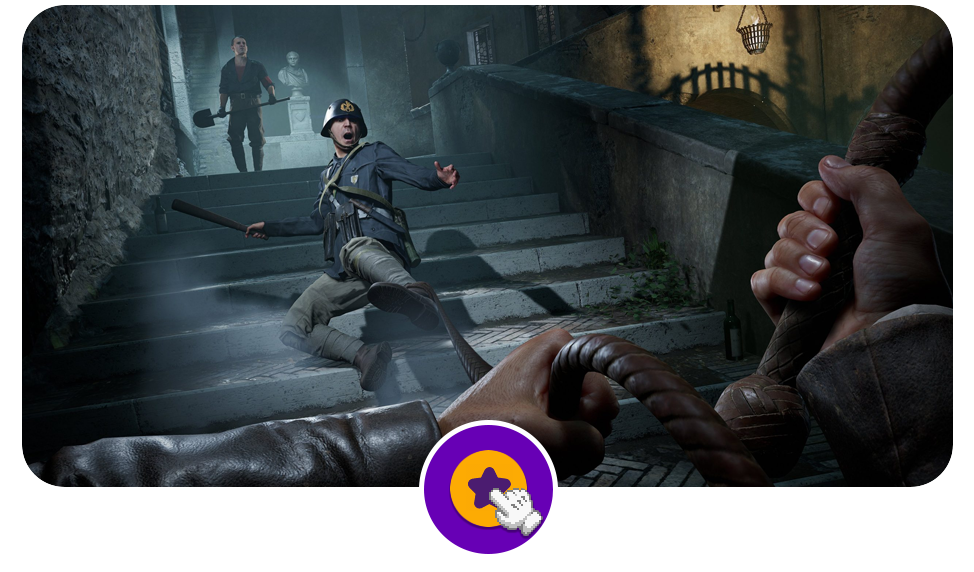
Indiana Jones and the Great Circle
By MachineGames
CJ Wilson
I will admit that I haven't finished Indiana Jones and the Great Circle. But what I have played so far makes it one of the best licensed video games ever made. I'm sure that some reviewers have said this, but as you play the game, you really do "feel" like Indiana Jones.
Just how it's presented to you in first-person makes you decide how you should approach certain situations. It's the kind of game where you can't solely rely on a firearm like your revolver to clear out enemies, as they will be alerted to your position. You must use stealth to get past sections by grabbing whatever is around you, like a shovel or a broom, to knock out as many guards as you want. The puzzles in the main game didn't feel too difficult as I had to look at my surroundings to complete them. Some puzzles in the open-ended levels however did make me have to use a guide on YouTube to find the solution.
Some of my favorite moments in the Great Circle came from side quests called fieldworks that feel like natural extensions to the main story. It made me get to know some of the side characters in the game from a personal point of view that was rewarding to experience. Most of my playtime came from finding collectibles through activities called discoveries, which I just naturally found from roaming some of the levels, like finding an ancient tomb in Egypt.
Indiana Jones and the Great Circle is a game that gave me plenty of surprises at every turn where I felt like I was watching a newly discovered Indy movie from the 1980s. I definitely will want to finish it so that I can witness many more twists and turns as the most famous fedora-wearing archaeologist.

"Indiana Jones and the Great Circle is a game that gave me plenty of surprises at every turn where I felt like I was watching a newly discovered Indy movie from the 1980s."
CJ Wilson
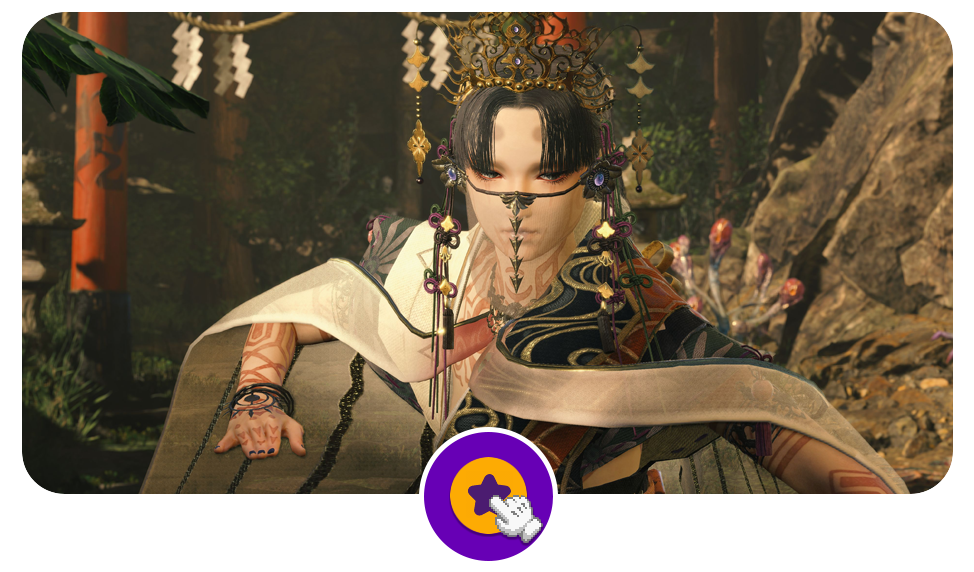
Kunitsu-Gami: Path of the Goddess
By Capcom
Antony Terence
There’s a special place in my heart for games that lets you leave a place in a better state than when you first found it. And sure, almost every role-playing game has you work towards a favorable outcome. But few games let you clear a path of cleansing through lands defiled by demons of Japanese folklore. Kunitsu-Gami: Path of the Goddess is among 2024’s most underrated gems, a curious oddity between tower defense and locking swords with ghosts.
It doesn’t take long for Kunitsu-Gami’s rhythm to set in. Scout out the map during the day, rescuing villagers and repairing defenses as the warrior Soh. As night approaches, your villagers can take on combat roles that range from rifle-wielding Marksmen to demon-taunting Sumo Wrestlers. Issue commands and lock their positions on lanes that lead to Yoshiro, a divine priestess who purifies the Torii gates that spawn Seethe demons. After some base-building once you clear a stage, you’re back to midday planning and late-night executions.
In an industry that inches towards unwavering uniformity when it comes to monetization, Kunitsu-Gami’s real-world currency-free approach is genuinely refreshing. Most studios don’t make games like these anymore. Its linear stages keep you going with twists and bosses to outwit as you unlock villager roles, Mazo Talisman perks, and Tsuba Guard combat powers. Add the fact that the game’s on PC Game Pass and there’s barely a barrier of entry to the stunning kaleidoscopic colors oozing through its clothing, architecture, and monsters. Outside combat, repairing structures gives you resources, woodblock prints that preserve your exploits, and delicious confections that took me back to my first encounters with Japan’s cuisine.
Carving a path to the Torii gate leads to a ceremonial Kagura dance sequence where Yoshiro and your villagers dispel the corruption, culminating in a visual spectacle that sanitizes the stage’s otherworldly limbs and creeping evil. Each victory gave me a rush of exhilaration, a feeling that I was making a difference. In a world that’s changing at an unprecedented pace, one that puts profits and corporations over the sanity of its people, being able to push the needle back is a welcome reward in a fictional setting. But it also left me with a conflicted sadness as Yoshiro stows the corruption within herself. If you lean towards unique experiences, you owe it to yourself to try Kunitsu-Gami: Path of the Goddess.

Like A Dragon: Infinite Wealth
Anselmo Jason
The ninth mainline entry of the Like a Dragon series deserves a shout. Playful but profound, broad yet bottomless, this game is the closest I can think of to this year's jack-of-all-trades gaming experience.
Infinite Wealth presents a gripping story with extra care towards its characters and their relationships compared to previous titles, especially on the legacy of protagonist Kazuma Kiryu. The game's excellent story beats and presentation more than makes up for its at-times uneven plot. It will make you laugh, and it will make you cry; par for the course for a Like a Dragon game.
As if the story is not gripping enough, Infinite Wealth offers an opulent experience for all fans old and new. The turn-based RPG element introduced in Yakuza: Like a Dragon is refined and expanded. The new sun-baked locale of Hawaii is full of exciting activities and charming side quests. The familiar cities of Isezaki Ijincho and Kamurocho offer heartfelt trips down memory lane. And who can forget Infinite Wealth's take on Animal Crossing, Dondoko Island? There is much to love in this game for both series newcomers and veterans.
Topped off with visually stunning graphics and a stellar soundtrack, Like a Dragon: Infinite Wealth deserves more of your love and attention. With a pirate-themed spinoff slashing its way in early next year, Infinite Wealth serves as a testament of Ryu Ga Gotoku Studio's trailblazer status in the modern open-world genre.

"I love how RGG dares to pull off the most ingenious tonal acrobatics, going from melodrama to vicious brutality, from dry social criticism to absurd surrealist humor, and marries "AAA" action adventure gameplay with delightfully simplistic arcade interludes."
Jörg Tittel
Jörg Tittel
RGG's ninth entry in the series may the best one yet, though I have been replaying Yakuza 0 on Steam Deck and can't believe how these games either don't age or simply defy the concept.
In Infinite Wealth, Ichiban Kasuga and Kazuma Kiryu experience more craziness in Japan and...Hawaii.
I love how RGG dares to pull off the most ingenious tonal acrobatics, going from melodrama to vicious brutality, from dry social criticism to absurd surrealist humor, and marries "AAA" action adventure gameplay with delightfully simplistic arcade interludes.
Magically, this eclectic mix never feels out of place.
Like Astro Bot, Like a Dragon: Infinite Wealth is a celebration of video games - and reminds us that, in the end, we shouldn't take ourselves too seriously and find fun in the most unexpected places.
Lucas Di Quinzio
Like A Dragon: Infinite Wealth is probably the funniest RPG I have ever played. Over the course of its vast runtime there never cease to be something worth at least a chuckle. Sometimes it’s a small interaction, sometimes an extended bit, sometimes you ride a dolphin to the island housing a fully-fledged Animal Crossing-esque mini game.
The new direction of Yakuza/Like a Dragon still has the big tonal shifts of the previous games but stays in the light and comedic zone for much longer. For that alone, it would be one of my top games of the year, but there’s much more to it than that. Ichiban Kasuga, the new series’ protagonist, is probably the biggest, most lovable goofball in games. Yes, he’s a former Yakuza who solves problems with a baseball bat, but he’s near-childlike in some ways - his levels of optimism, the in-game reasoning for the switch to turn-based battles being his love for Dragon Quest, and belief in the power of friendship.
It’s that last point that really forms the emotional core of Infinite Wealth - it’s a game about adult friendships. Ichiban and his pals aren’t just a motley crew who have assembled due to a common goal like many party-based RPGs - they are friends. They gain new combat abilities by going for drinks and hanging out, they all support each other no matter what. Yes, it’s a bit corny, but it is earnest and really does hit that part of you that thinks “hey, how do you make friends when you’re thirty-plus?” We could all use a friend like Ichiban Kasuga.
Matt Hewson
Where do I start? Firstly, I have to say it was a little disappointing to play my 2024 GOTY in January, and what's worse is I said to myself, "I am not going to play anything better this year" while reviewing the game. Turns out I was right, I didn't play anything better this year. Ichiban and Kiryu teamed up in a game that took the sold JRPG foundations laid out by Like A Dragon, fixed the issues in that release, added a great new map, a story that is pure high drama and sprinkled it all with some of the best mini games ever to appear in a video game.
For the longest time, the Like a Dragon games (aka Yakuza) have always been developed under the philosophy of "Why not? It's a Video Game", and Infinite Wealth took that to the next level. One minute I was dealing with the shocking news of Kiryu's cancer diagnosis and the next I was playing an insanely fun Crazy Taxi clone. Most games would give a player whiplash with that sort of thing, but somehow Infinite Wealth makes it work.
Sure, I might be biased. I have been a long-time champion of the series, but in all honesty, I can't remember a game that has brought a bigger smile to my face and that, in my mind, is something worth championing.
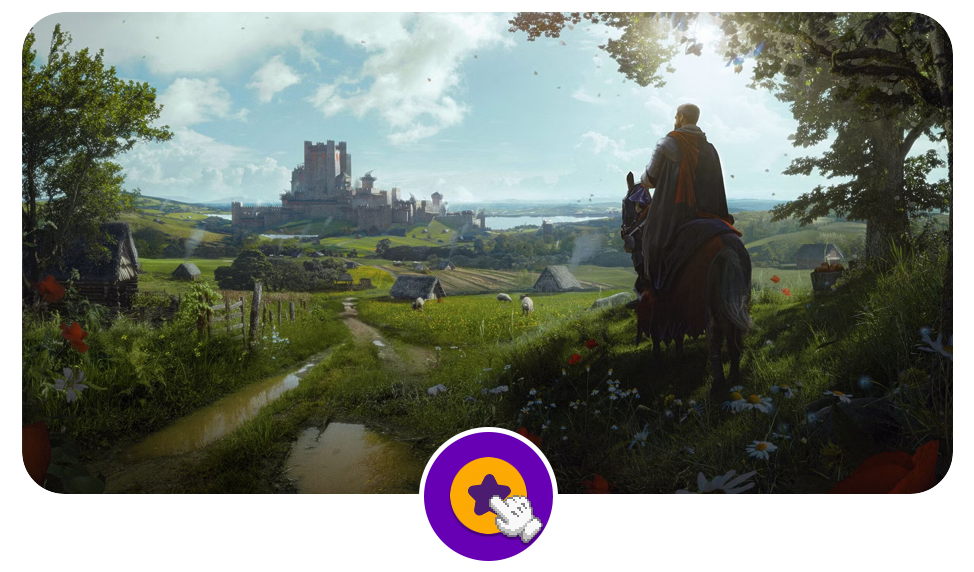
Manor Lords
By Greg Styczeń
Gavin Annand
I’ve sung the praises of Manor Lords already this year, and since its release into early access the game has only improved, with additional tweaks to balance and mechanics. At time of writing, a significant update lies on the horizon that will expand the game to more maps, as well as add additional mechanics further enriching this already impressively rich experience.
In my mind, Manor Lords is a good example of what the modern games industry has become. Large AAA studios spend tens of millions of dollars putting together games that ship with endless issues and fail almost instantly. These same studios have been ravaged by job losses, and the relentless corporatisation of the games industry over the past 20 years pushed gamers away from traditional big-studio releases. Meanwhile, game development has been vastly streamlined over that period, and is more approachable than ever thanks to easy access to game engines and assets. A single developer (in this case, Greg Styczeń), has managed to achieve what only large studios could have achieved in the past. Approachable game development, combined with sclerotic corporate structure in AAA studios, has seen unique opportunities arise for small and independent developers with unique ideas and a bit of passion.
And Manor Lords is undoubtedly an incredible work of passion. The detail, aesthetic, considered design and attention to detail is the result of Styczeń’s dedication and hard work, and if sales figures and reviews are anything to go by, that work has paid off in earnest. Manor Lords appeals to a very particular type of gamer, and if you’re one of those people, then you’ve probably already played Manor Lords, or are waiting for the right opportunity to pick it up. Manor Lords scratches the same itch that titles like The Settlers, Knights & Merchants, Banished or the Anno series does. Any time I feel cynical about the direction the games industry has taken over the past few decades, I think of Manor Lords and remember that those games still exist – they’re just being made by people like Greg now.
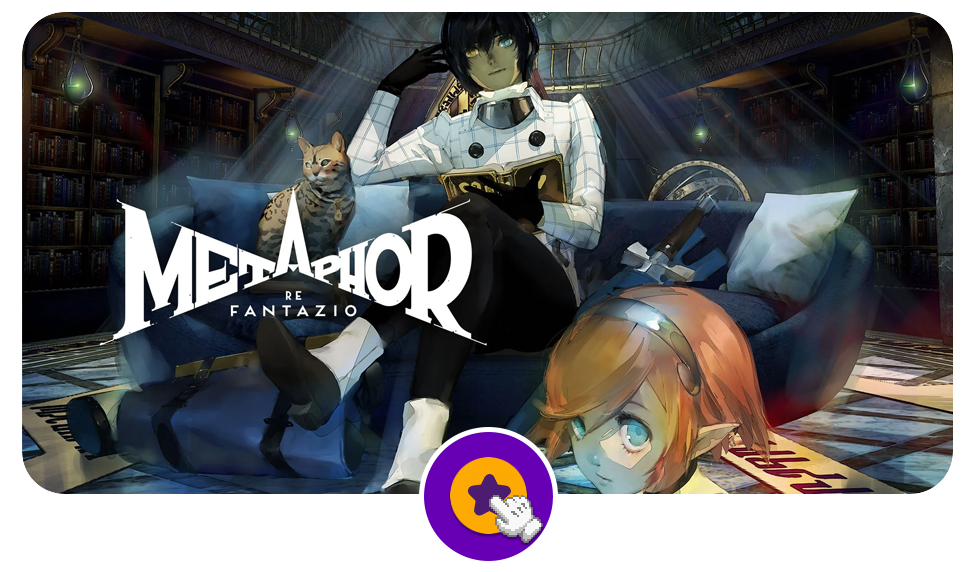
Metaphor: ReFantazio
By Atlus
Benjamin Macready
Atlus has a track record of releasing some of the best RPGs in the industry. Metaphor: ReFantazio stands out as something truly special, even when held against the high standards set by the rest of this publisher’s output.
Metaphor's story, about a fantasy kingdom gripped by a succession crisis, is at once utterly timeless and deeply relevant to today. With themes of class, race, and resisting tyranny, Metaphor deals with heavy subject matter but handles everything with delicate nuance. The plot is a warning about the dangers of utopianism, and of populist strongmen who claim to be serving their nation, while in fact only serving themselves.
Louis Guiabern, the game’s main antagonist, is as charismatic and suave as he is morally bankrupt and detestable. He is a once-in-a-generation villain, Atlus’s very own Sephiroth. His presence animates the story, and he constantly drives the action forward encouraging the player to resist and rebut the dreadful influence he holds over the kingdom.
The playable cast is a diverse and complex group. They are each dealing with their own struggles, which they gradually overcome together. From the scarlet-haired knight errant Hulkenberg, out to redeem her tarnished honour, to the chiropteran rogue Heismay who slowly rediscovers the joys of life after a past tragedy caused him to isolate himself from society. Metaphor really lets you know your party. All of their individual stories come together to make you truly care about the world you’re saving, and the people you’re saving it with.
It’s not only Metaphor’s story which excels. The gameplay combines the best of the press turn system from Shin Megami Tensei and Persona’s calendar management and social elements. It’s far too easy to get lost in the world of Metaphor: ReFantazio and to find large chunks of your day swallowed up delving into dungeons or roaming the realm in your gauntlet runner.
2024 gave us some great games, but Metaphor: ReFantazio stands in a tier all its own. Every second of this 60+ hour feels lovingly crafted. The passion and creativity that went into making this standout RPG is beyond dispute.
Brandon R. Chinn
I'm not sure what I can say about Metaphor that I haven't already said elsewhere. Developed by Studio Zero and published by Atlus and Sega, it is a transcendent turn-based RPG that proves that not only is the JRPG genre alive and thriving, but turn-based games and political narratives are here to stay.
Metaphor feels as though it came along and the perfect time, blessing us during an especially tumultuous year with a plot that's thick with material philosophies about class, race, and revolution. Packed with memorable characters as well as an otherworldly score by Shoji Meguro, Metaphor might as well be considered Atlus' Elden Ring, taking every inspiration and lesson from SMT and Persona and transforming it into a new and arresting experience.
Metaphor's biggest flaw is that the game eventually ends, and you are left only with a memory of the time, or perhaps ready to start a new file.

"I never found the writing to have a scolding or condescending tone towards the audience, and I think that’s why Metaphor’s message has resonated so powerfully with gamers across the political spectrum, a rare achievement in today’s divided world."
Julia Hu
Julia Hu
All of my friends, gamers or not, will tell you that after its release, I just could not stop talking about Metaphor ReFantazio and pushing its demo onto them. And now that I have the platform of SUPERJUMP, I will continue talking about how this game is for gaming as cinema or literature are for movies and books. Its release date shortly before the U.S. presidential election made the game particularly timely for its global audience. This game has displaced my previous favorite game of all time to be not just my GOTY but favorite game of all time (so far).
To me, Metaphor’s message is one of hope. The game’s fantasy setting serves as a metaphor of our own, while our real world is the setting of the in-game utopian fantasy novel. The most ugly aspects of our society are distilled and reflected in Metaphor’s setting, such as racism among the tribes, socioeconomic inequality, and even drug use and death in the neglected alleys of the capital. And at the same time, our most beautiful aspects are romanticized within the pages of the protagonist’s fantasy novel, including our modern technology, freedom of religion, and democracy. Each new companion in our journey requests to see Will’s fantasy novel and reads aloud a passage relevant to their plight while a beautiful, twinkling melody plays in the background. The utopia in the fantasy novel - a thinly metaphor of our society at its best - will have already long resolved whatever the companion is struggling with in their world, which itself is a metaphor of our society at its worst.
Obviously, a perfect society where everyone is happy cannot exist, and the in-game author of the novel, More, even acknowledges this. But this does not mean that we should stop believing in the best possible versions of our societies. Throughout the plot, Metaphor shows us how the ideals of democracy evolves and twists when it is put into practice, such as political parties, corrupt bureaucrats, populism, and misinformation (my hot take is that Sanctifex Forden was a much more dangerous villain than Louis). But despite how on the nose of a metaphor that the Euchronian Kingdom serves as, I never found the writing to have a scolding or condescending tone towards the audience, and I think that’s why Metaphor’s message has resonated so powerfully with gamers across the political spectrum, a rare achievement in today’s divided world.

Mouthwashing
By Wrong Organ
Jared McCarty
People underestimate how difficult it is to make something truly scary. The ability to invoke fear deep into the core of a person, especially when that person is sitting cozy in their homes, takes a lot of effort, patience, and understanding to pull off correctly. That hard-to-describe feeling of being utterly horrified and disgusted while simultaneously helpless to the idea of doing anything but continuing onward into the void is such a tenuously tight rope to walk. Indie dev Wrong Organ's fantastic horror game Mouthwashing does it with straight-up pizzazz.
You are the co-pilot of a deep space freighter, trying to survive after your ship crashed into an errant asteroid. You, along with your four crewmates, must navigate starvation, isolation, and insanity as your ship floats listlessly through the recesses of space's endless expanse. There are so many twists and turns in the narrative, accompanied by fantastic visuals, disturbing and depraved set pieces, and unbelievably effective sound design. It’s one of the most inventive, interesting, and discomforting horror games made within the last decade, and it deserves all the credit it’s been getting. SUPERJUMP's Marvel Maximus hit the nail on the head with his piece covering Mouthwashing, and I implore everyone to go and read it. Horror lives between the lines of what’s given to you, and Mouthwashing understands this to a disturbing degree. A gripping narrative, appealingly bizarre modern-retro aesthetics, a very digestible run-time and price, and the lovingly understood ability to create true fear in the player makes Mouthwashing a must-play for any horror fan, and I was blown away by how good this little indie is.

"I hope that Mouthwashing sets a trend for indie developers that want to delve in horror, not to copy its aesthetic or setting, but to just go wild, prioritize inventive storytelling and three dimensional characters rather than cheap jump scares."
Marvel Maximus
Marvel Maximus
Mouthwashing really surprised me. I've played games that look like this before, with jagged polygons and distorted textures that take the form of faces. But this one...this one's different. Its non-linear storytelling took me off guard. The depth of the characters too, especially in how short of a game this is. And the approach to horror and disgust that Mouthwashing takes is on another level, terrifyingly captivating. It makes you feel for the characters, and think about life once you see the credits roll. Not a lot of short horror games are able to do that.
I hope that Mouthwashing sets a trend for indie developers that want to delve in horror, not to copy its aesthetic or setting, but to just go wild, prioritize inventive storytelling and three dimensional characters rather than cheap jump scares.
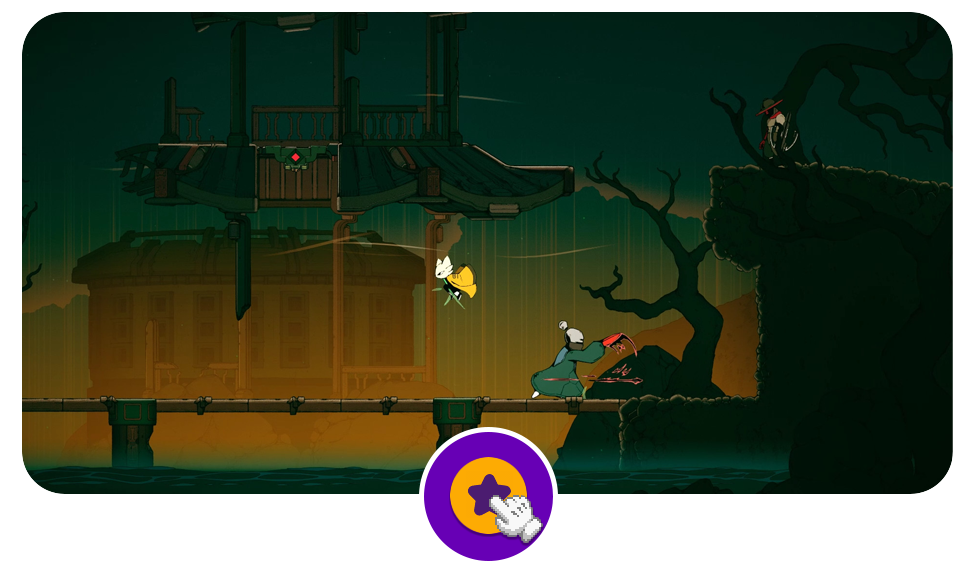
Nine Sols
Josh Bycer
Nine Sols is one of my favorite metroidvanias in some time. It carries on the legacy of Hollow Knight in terms of movement and exploration, but elevates the combat with a focus on parrying right out of Sekiro. It's no surprise that this is also one of the harder games released this year, and if you're not a parry master, I would suggest playing it on story difficulty.
The art is gorgeous throughout as you ooh and ah as you try to learn enemy patterns. And also like Sekiro, for fans who want to truly beat the game, there is a true final boss that will test all your skills to beat it.
While it's not as focused on customization like Hollow Knight, it is still one of the best metroidvanias of 2024 and might just hold you over as we continue to wait for Silksong.
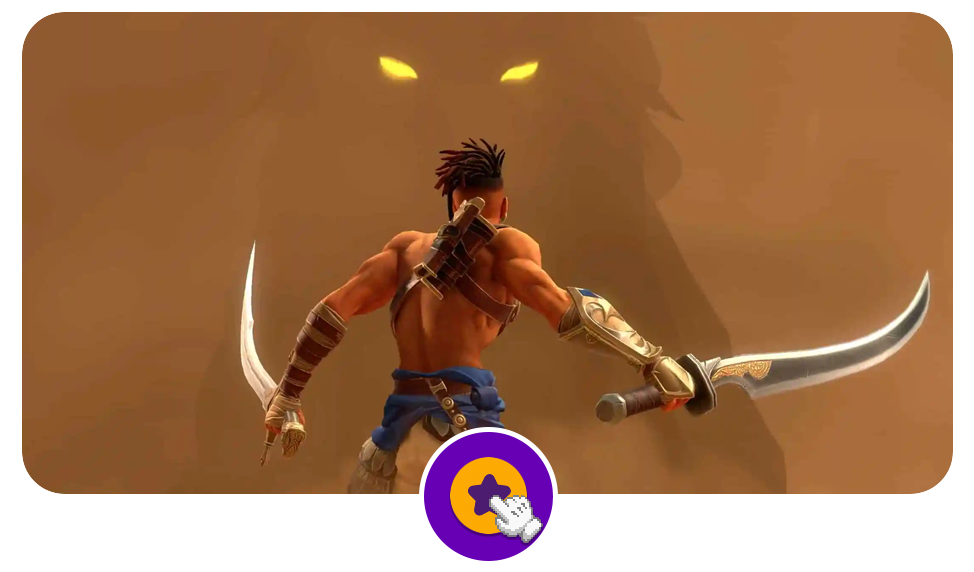
Prince of Persia: The Lost Crown
Harel Cohen
I've waited for a long time for Prince of Persia to make a comeback. Sometimes a long wait can end in disappointment...but this time? The game was worth the wait! I wrote a whole review earlier this year in which I gushed all over The Lost Crown's fluent gameplay, fun puzzles and intense boss fights; and I'm happy to report that nothing has changed. With additional content being released throughout the year, this is still an adventure I recommend everyone embark on.
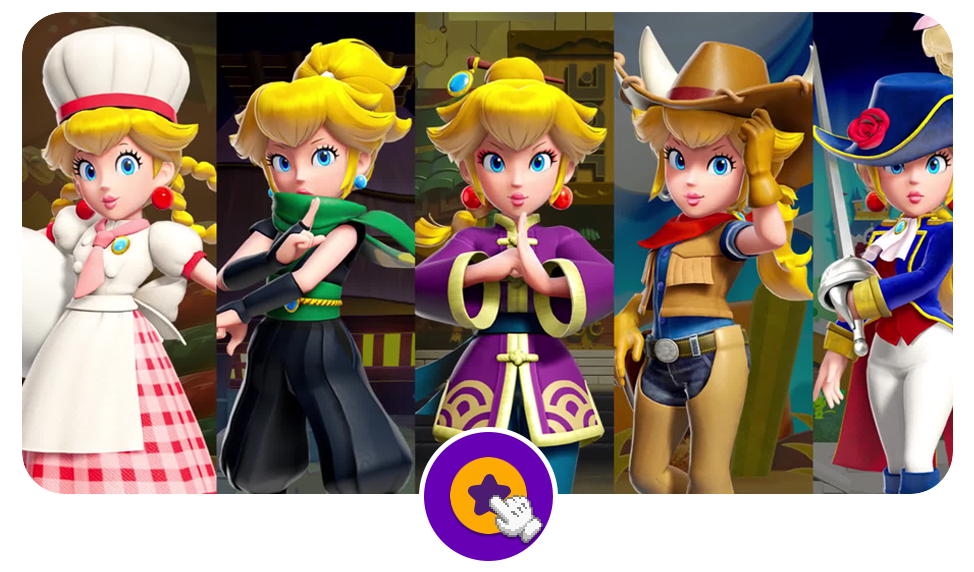
Princess Peach Showtime
By Good-Feel
Priya Sridhar
Princess Peach is ready to perform (and save some lives while doing it). She enters the theaters where different plays and genres transform her into heroes or thieves alike. From stealthy ninja work to baking wizardry, Peach does it all and doesn't have to deal with Bowser once. I appreciate the game's theater kid energy (as someone who wanted to be a theater kid but didn't perform after middle school), as well as its freewheeling jumps into many different genres.
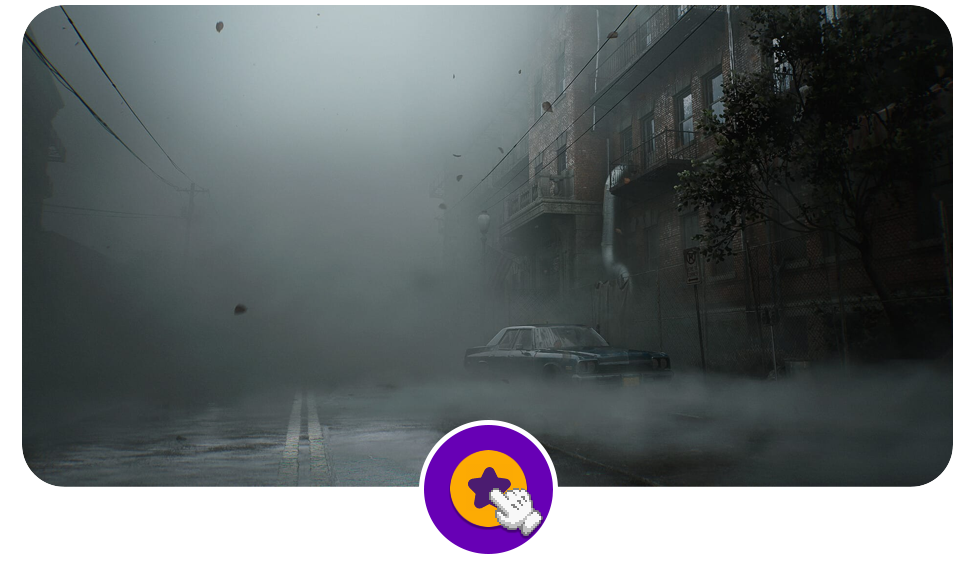
Silent HIll 2 Remake
By Bloober Team
Anthony Wright
Silent Hill 2 is often regarded as one of the greatest horror games of all time, so when Konami announced that Bloober Team would be developing a remake, I was quick to dismiss it. My faith in Konami had soured over the years and I had assumed that any effort made to remake such a perfect game would go down in flames. However, after reaching the end credits for the remake, I’ve never been so happy to be proven wrong.
What I love most about Bloober Team’s remake of Silent Hill 2 is that it doesn’t just exist to evoke nostalgia for fans who played the 2001 classic, but also exists to expand on the haunting themes and ideas that the original game introduced without ever feeling like it's missing the point. While fans of the original will recognise the same story beats throughout, Bloober Team smartly rearranges them to stop the remake from feeling too familiar, simultaneously delivering new moments of their own to further flesh out the town of Silent Hill and the deeply troubled characters that inhabit it.
Bloober Team thankfully does not shy away from the subject matter introduced in Silent Hill 2, and in fact, expands on it in ways that make it even more impactful. Sections like the Abstract Daddy fight are somehow even more shocking than they were in the original but are handled with such care and empathy that they don’t just end up being used for cheap shock value. Every single detail, no matter how big or small, has a larger purpose within Bloober Team’s remake to reflect the horrors that we face in society today, just like the original game did over two decades ago.
Bloober Team’s love and passion for the Silent Hill franchise is made obvious with this game, and Konami thankfully seems dedicated to continuing pushing the series forward after its long absence. If future sequels and remakes match the same quality found here, Silent Hill has a very bright future ahead of it.

"Bloober Team’s love and passion for the Silent Hill franchise is made obvious with this game, and Konami thankfully seems dedicated to continuing pushing the series forward after its long absence."
Anthony Wright
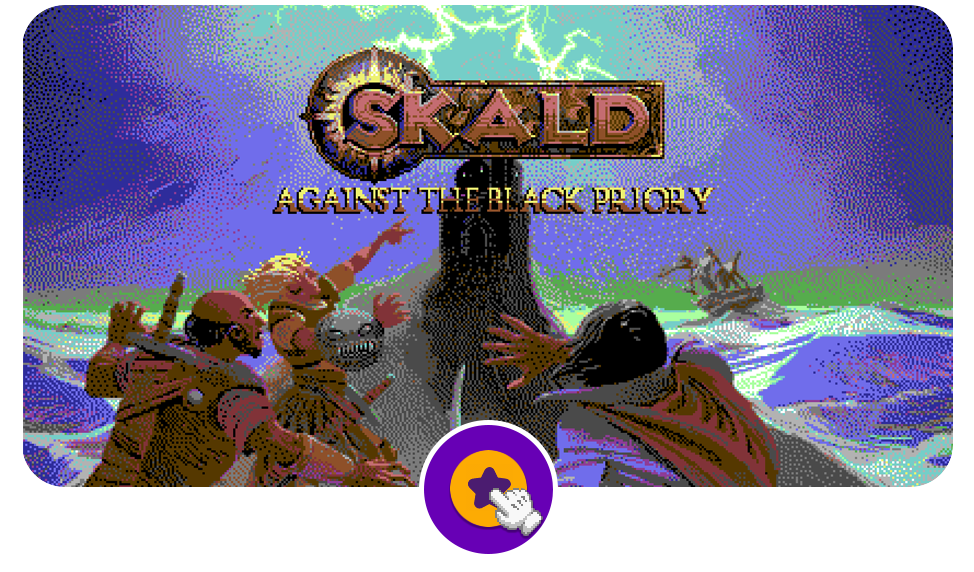
SKALD: Against the Black Priory
David Cole
This game comes recommended by Sven Vincke of Larian Studios. If someone tells me I should engage with media and is wearing plate armor, I’ll listen to them. Just look at Chappell Roan!
SKALD is one of those indie games that can best be described as a “love letter,” even when such phrasing is beyond rote. Specifically, this letter is addressed to Ultima and The Bard’s Tale, among other older computer role-playing games. It’s a party-based RPG, involving management of up to six characters as you traverse the land on a quest to find a childhood friend.
One thing SKALD offers is a simplified version of what its inspirations focused on. Instead of creating a party whole cloth, you really only craft your central character (though the option to create more custom characters is available). The rest of your party are named characters with pre-defined classes and quests associated with them. To me, this slow doling out of characters allows for a satisfying ramp up in combat difficulty rather than the sheer cliff of something like The Bard’s Tale or even Etrian Odyssey. This is the key. SKALD is the most accessible “old-school” CRPG I’ve encountered and that alone makes it worthy of praise.
But there’s more SKALD brings to the table. The prose used to describe the sometimes simplistic and sometimes incredibly-detailed pixel art that makes up the world around you is fantastic stuff. It comes across as a gifted Dungeon Master running a campaign just for you. We don’t all get to have that experience, but SKALD offers a digital alternative. Its take on the fairly common tropes of cosmic horror, which weave themselves into the story early and often, is refreshing as well. It relies on you, the human element in that literary equation, being as confused and overwhelmed as your party is. You came to this island with a specific mission and all of these terrible, incomprehensible monsters from elsewhere are getting in your way. It’s stressful!
The atmosphere feels oppressive in the best way. Your view of the world is limited to a fairly small area surrounding your character, making it very easy to stumble into a nest of beasts ready to gnash away at your bones. This is supplemented by an incredible dungeon synth score that gives the impression that the land itself is haunted. Which is appropriate, seeing as much of it is.
I can’t speak to replayability, as I’m still deep into my first playthrough. But what I can say is that the game is so wonderfully crafted and assembled that I’ve been thinking about it almost constantly since beginning that playthrough. This is one of those games that will sneak into your mind while you’re at work, taunting you with the knowledge that soon you will be able to explore its forbidding world once more.

"SKALD is an exceptional example of Lovecraftian and dark fantasy fiction, and has captured the attention of industry veterans like Larian’s Sven Vincke."
Gavin Annand
Gavin Annand
Every now and then, a game comes along that sticks with you. For me, that was SKALD: Against the Black Priory. I approached this game fairly confident that I’d enjoy it – the retro aesthetic reminiscent of Ultima VI and VII, or SSI Gold Box games, tickled my nostalgia in a satisfying way. The trailer emulated a 1980s TV advert, as bolts of lightning hoist a faux-SKALD game cartridge into what looks like a Commodore 64, followed by snippets of old school gameplay, beautiful pixel art cutscenes, and a banging chiptune soundtrack.
You might be forgiven for dismissing SKALD as nostalgic indulgence, and there’s no question that SKALD delivers in this regard. However, this game is a work of art. The pixel art during story sequences is some of the best I’ve ever seen, beautifully capturing the dark Lovecraftian horror of the setting. The interface is full of intricate detail – still functional, but decorative in a way that isn’t often seen anymore. Mechanically, this is a solid RPG – fairly minimal complexity in its mechanics, but reminiscent of rules-lite tabletop systems of the '80s and '90s.
Where SKALD stands out, however, is the writing. The pacing and tone are perfect. The characters are engaging, their motivations are relatable. SKALD is a grim view of humanity in the face of crisis, and the game is a powerful commentary on the nature of, and limits of, morality. One quest sees the player travel to the town of Firgol, and even with some pretty obvious sign-posting of malevolent undercurrents in the town, the delivery of the quest’s finale is still powerful and shocking. SKALD wraps up in a way that some might find frustrating, in that not everything is explained to the player in explicit detail, but this is exactly what make’s SKALD’s writing so good. Norwegian developer Anders Lauridsen understands that good writing is often powerful by virtue of what is not explicitly stated, leaving the reader’s mind to fill in the gaps with horrors more vivid than words on a screen could ever portray.
SKALD is an exceptional example of Lovecraftian and dark fantasy fiction, and has captured the attention of industry veterans like Larian’s Sven Vincke. If you’re a CRPG fan that values strong writing and world-building, this is one you can’t miss.
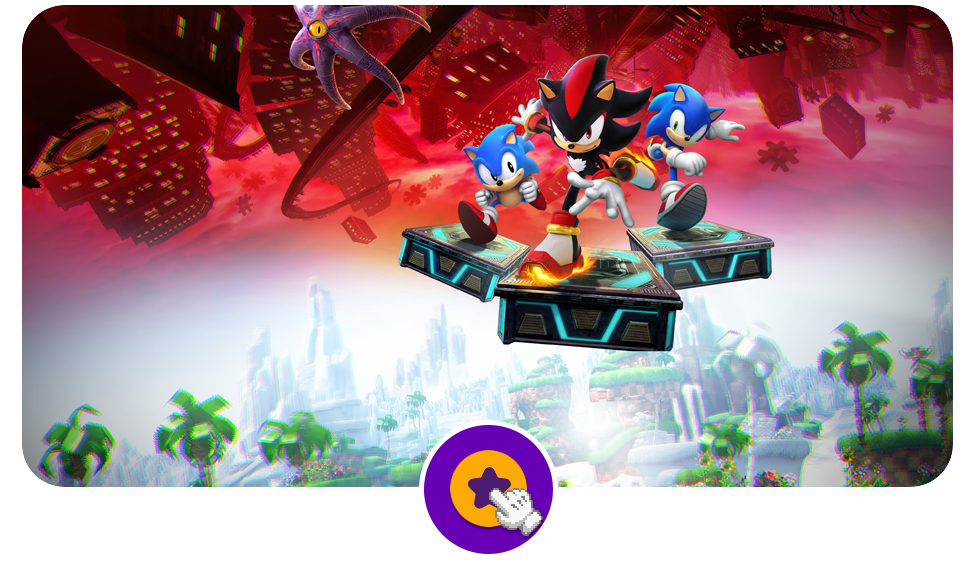
Sonic X Shadow Generations
By Sonic Team
Harel Cohen
On the one hand, you get a great remaster of one of the best Sonic games ever released with a few additions and on modern hardware. On the other, you're getting a new game with an emotional story, fantastic level design, and proof that SEGA has a very solid direction for the future of this franchise which they're going to keep building upon. As a long-time Sonic fan; it feels amazing to experience such an outing from the franchise and be reminded why I love this hedgehog (and his shadowy rival!)
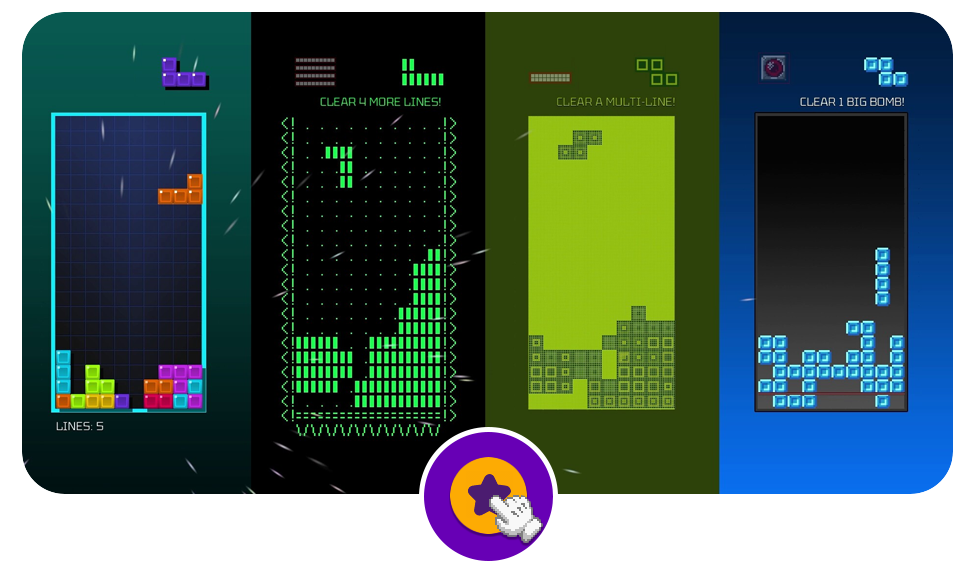
Tetris Forever
Jahanzeb Khan
Part compilation, part video game documentary. There is so much to enjoy about this release; it's an absolute must for any gamer. The collection contains some rare cuts from the franchise, most importantly being the original Tetris program written by Alex Pajitnov that became the blueprint of the greatest puzzle game ever. The documentary portion is an exciting and fascinating journey into getting a game out of the (then!) Soviet Union into the hands of gamers all over the world. And no, there was no car chase sequence after all.

Thank Goodness You're Here!
By Coal Supper
CJ Wilson
Thank Goodness is one of the funniest and weirdest games that I have ever played. While the controls are fairly simple where you just walk around having to complete certain tasks for the townsfolk living in Barnsworth and getting to jump over obstacles, the humor is the defining element. Much of the dialogue and writing has that quirky feeling with its dry, British wit with moments that make you laugh or feeling uncomfortable at what you are seeing with your eyes. While this game will take you a few hours to play through, the things you will experience will stay with your mind for days, maybe even months afterwards.
James O'Connor
Any game that can make me cackle laugh over a phrase as juvenile as "slappy bum bum" deserves high praise. Thank Goodness You're Here! is a game dedicated entirely towards making you laugh, and it manages to do so consistently - what more could you ask for?
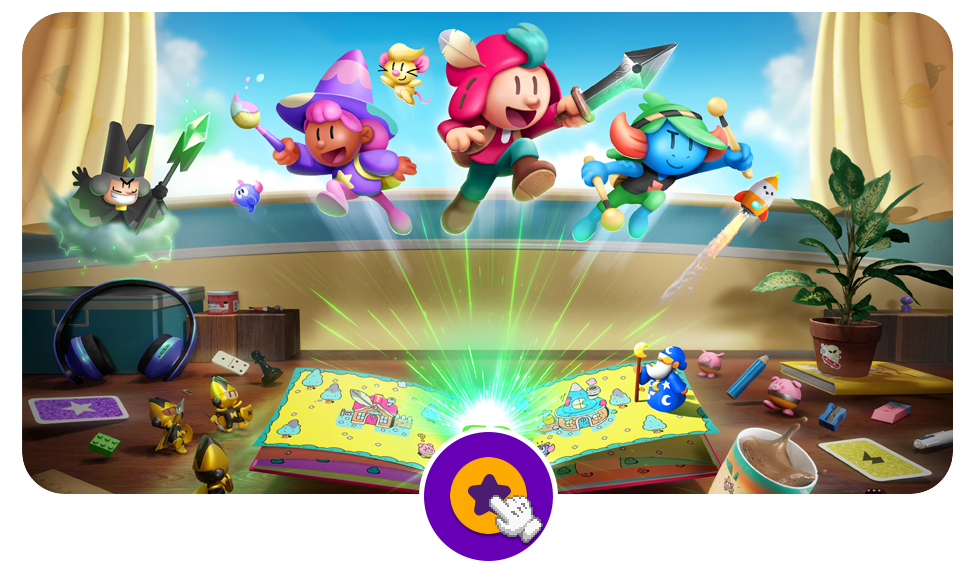
The Plucky Squire
Andrew Johnston
The one word that keeps coming to mind with The Plucky Squire is "fun," but not just because it's a fun game to play. It's the entire concept and presentation. This is, fundamentally, a fun-loving game that exists for no other reason than to celebrate its own medium.
The Plucky Squire traces its lineage back to the NES and then beyond video games to the concept of "games" in general. Anything that someone might have obsessed over in their youth will have a place in the game, but what makes it special is that this is not mere nostalgia bait. The novel word-swapping and book manipulation mechanics exist to build on top of what came before. It's a game that nods to its predecessors without being subordinate to them.
And of course, I have to mention the visuals because that's the same thing everyone else noticed at first. The Plucky Squire employs elegant graphics styles for its 2D and 3D sections, each of which is attractive and distinctive yet visually simple enough that it's not jarring when the player character travels between them. Visual design is still very much alive and kicking in the indie space, and this proves it.
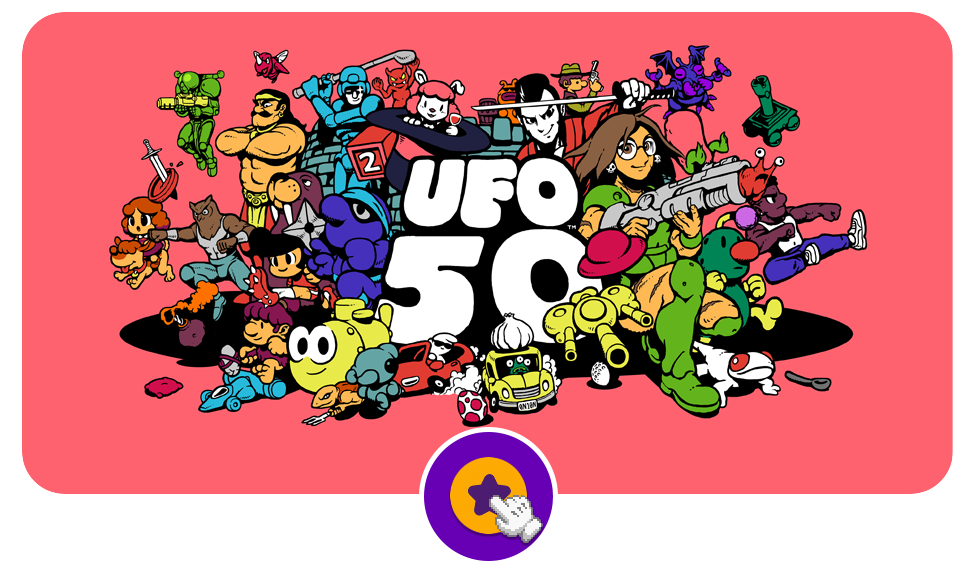
UFO 50
By Mossmouth (Derek Yu, Jon Perry, Eirik Suhrke, Paul Hubans, Tyriq Plummer, Ojiro Fumoto)
Jamie Galea
UFO 50 is a celebration of a company that never existed, comprised entirely of 50 original games that evoke the computers and consoles of the 80's. It being helmed by Derek Yu of Spelunky fame, but with an all star team including Ojiro Fumoto (Downwell) should already get you interested, but here's the actual reason why it rocks - they made 50 very good retro inspired video games.
Even if you may not like all of them, there's more than a few that are really cool. After bouncing around a few of the earlier games, I found my groove in Night Stalker, a first-person adventure game reminiscent of Shadowgate or Deja Vu, and one that I couldn't stop playing until I'd cleared it fully.
But it's not just Night Stalker that really captivated me. Seaside Drive is a fantastic mashup of driving and shooting. Mini & Max is a platformer with a really neat gimmick. Party House is a genuinely cool deckbuilder. Valbrace is a rad first person dungeon crawler with Punch-Out style combat.
It nails the feeling of being given a massive collection of older games and discovering what's actually pretty cool and what could've been left behind. Hell, there's still plenty I've yet to discover, and knowing Yu and the way he makes games, probably quite a bit more to this experience.
Just...don't start with Barbuta.

"Seaside Drive is a fantastic mashup of driving and shooting. Mini & Max is a platformer with a really neat gimmick. Party House is a genuinely cool deckbuilder. Valbrace is a rad first person dungeon crawler with Punch-Out style combat."
Jamie Galea
Josh Bycer
A long-in-development collaboration to celebrate retro games and design, UFO 50 succeeds at giving us an almost alternate universe collection of games.
From those that are decidedly retro, to some that feel original, there is a huge variety of games to play. While there are some that you may not like, that's kind of the point of this collection – it is a celebration of game design in its many forms. I would be surprised if there is someone out there who personally loved all 50 games, but there is a game for everyone here.
If you have any interest in the act of game design – learning how gameplay can work in all of its many forms, UFO 50 is a must play. As game design enthusiast, UFO 50 is a treat to play and examine to see the inspirations and original takes in the collection and is further proof that game design is universal – you don't need expensive graphics to create something amazing and unique that resonates with people.
Lucas Di Quinzio
The aim of UFO 50 is to evoke the feeling of delving into the back catalogue of an '80s console you didn’t grow up with, with each game unlocked from the start, complete with a blurb of info outlining its place on the fictional console’s timeline.
Mossmouth has done quite a good job with this, but there is one issue - the games are too damn good. If it was like a real retro collection there would be six so-so mascot platformers. Thankfully they didn’t commit that much to the bit. In fact, many of the games owe more to modern game design trends than you might think.
My personal highlight was Party House, a genuinely great deckbuilder that would be the year’s best in most other years. Then there’s Bug Hunter, a tough-as-nails grid-based strategy game that seems to have a hefty dose of Into The Breach in its DNA. There’s Avianos, a miniature 4X game, Night Manor, which is like that Friday the 13th NES game if it was actually really good, and Zelda/idle game hybrid Pilot Quest. Then there’s a suite of platform and action games, my favourite being Mini & Max, which plays with scale in a truly inventive way.
And you know what, ask someone else who’s played UFO 50, and they could very well have a completely different list of highlights. Hell, ask me another day and I might have different favourites, that’s how many great games are in this collection.
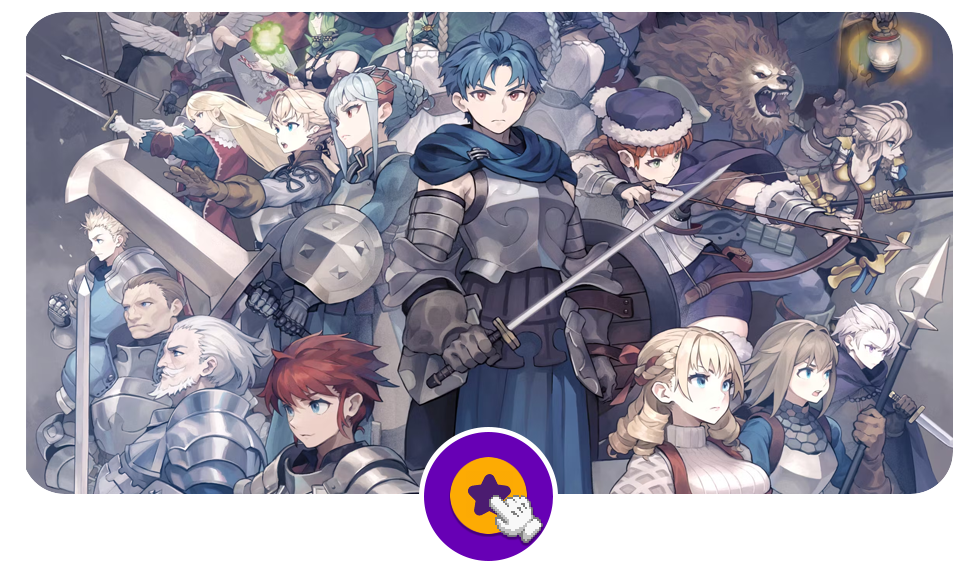
Unicorn Overlord
By Vanillaware
Brandon R. Chinn
Atlus' surprise hit from Vanillaware perhaps shouldn't have been that much of a surprise, considering the beauty and complexity of their past games 13 Sentinels, Odin's Sphere, and Dragon's Crown. Nearly ten years in development from conception to release, Takafumi Noma's team wanted to celebrate the tactical RPGs of the 1990s.
With a composition by Hitoshi Sakimoto's music studio, Unicorn Overlord is much more than homage; it may well be one of the new classics in the genre, a game that expertly blends tactical RPG gameplay, charming characters, and unbelievable two-dimensional visuals with quality of life updates from a team who deeply understood and respected their inspirations.
With an online multiplayer mode, a massive overworld, and a plot dripping in political strife, Unicorn Overlord may well stand shoulder to shoulder with Final Fantasy Tactics and Tactics Ogre.

"Vanillaware remains a developer that can't stop hitting it out of the park, and Unicorn Overlord is a perfect example of systems and mechanics working together to create something really, really cool."
Jamie Galea
Jamie Galea
As the follow up to the sublime 13 Sentinels: Aegis Rim, Unicorn Overlord couldn't be anymore different. Where 13 Sentinels gave players a surprisingly deep and rewarding story with a decent tactical game in between, Unicorn Overlord gives players a surprisingly deep and rewarding tactical game with a passable enough story. If anything, the game has a story just to prop up the rest of the game.
Yet don't let this throw you off! There's so much about Unicorn Overlord that feels really rewarding, with the game offering so much in terms of its systems and mechanics that you're encouraged to tinker and mess around to find the perfect setup for every encounter.
The same goes with just about everything else in the game too. To give you an idea, this is one of those games where you can access the final battle much earlier than you're supposed to. However, if you know what you're doing, you can probably do a lot better than you'd think in that fight at such a low level.
All of this is presented with Vanillaware's incredible sprite art, their trademark for the last 20 years. It's as striking as ever, and while some of it may not be to everyone's liking, it never ceases to look stunning.
It's also maybe the most available that a Vanillaware game has ever been. Unlike 13 Sentinels, a PlayStation and Switch version launched simultaneously, alongside an Xbox version, a first for the company. Frustratingly, there's no PC version, with it feeling like Vanillaware dragging their heels as the rest of the world is seeing great results on Steam. It's a move I can sorta respect, even if it drives me insane.
Regardless, Vanillaware remains a developer that can't stop hitting it out of the park, and Unicorn Overlord is a perfect example of systems and mechanics working together to create something really, really cool.
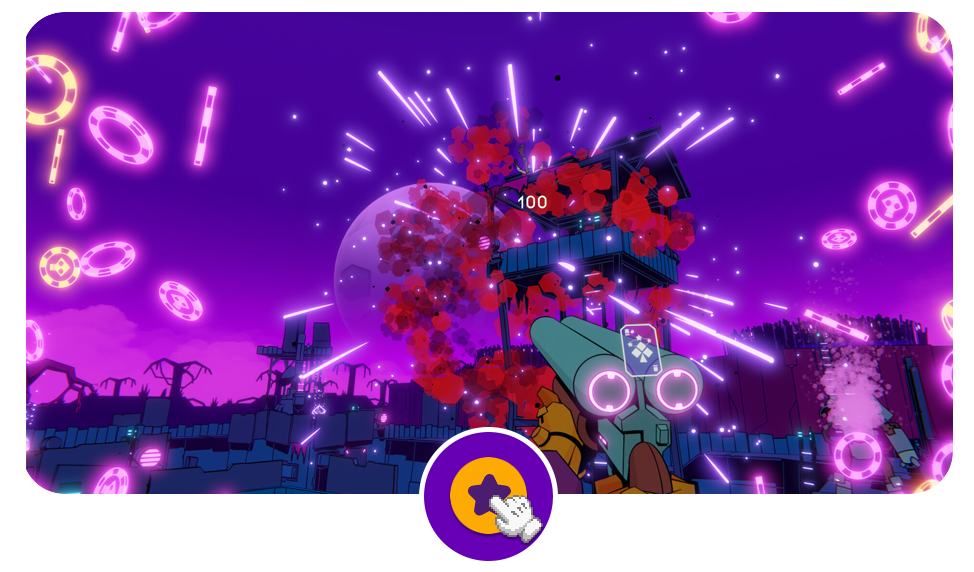
Wild Bastards
By Blue Manchu
Andrew Johnston
In a world of uninspired roguelike games, it's nice to see that one that so perfectly nails the mechanic. Developer Blue Manchu already proved that they had a solid grip on organized chaos with Void Bastards, but its spiritual successor Wild Bastards so thoroughly surpasses that one that it's remarkable.
The real magic lies in its characters. Over the past decade, we've really learned how powerful good character design can be, and that's where Wild Bastards has the edge. It's not just the each of the playable characters has unique weapons and skills that lend them to different playstyles, it's also the banter and behind-the-scenes relationships that makes them feel real. You'd think you were really wrangling a pack of misfit weirdos on a journey through space.
Beyond that, the moment-to-moment gameplay of Wild Bastards is just plain satisfying. The variety in the characters means that there are different approaches to the gameplay - stealth, run-and-gun, sniping, ambushes, or raw directionless destruction. However you opt to approach any fight, it feels good. Narrowly slipping through a difficult fight using a combination of tactics and mechanical skill is as righteous as it was in Void Bastards, but with less downtime and more action.

Phew! That's it for another year. We hope you enjoyed our 2024 Games of the Year celebration. Join us again next year when we'll be doing this all over again. And in the meantime, please continue to enjoy SUPERJUMP. Thank you for reading. Have a safe and happy 2025.
